




I am proud to present the 2023-2024 Impact Report for the Division of Academic Engagement and Student Affairs (DAESA). This report provides a snapshot of the impact the division has had on the students we serve.
One notable takeaway this year is that participation in DAESA programs, service utilization, and event attendance has increased at higher rates than overall UWF enrollment, meaning that student engagement is on the rise. That’s great news, because students who are engaged on campus are also students who succeed in meeting their academic goals.
In today’s higher-education landscape, universities must adapt quickly to meet the changing needs of students. We must also be accountable to our stakeholders by showing how our efforts to support student success are making a real difference.
I invite you to examine the data contained in this report, reflect on our impact, and gain a deeper understanding of DAESA’s transformational role on campus.
Together, we are making a difference. Go Argos!
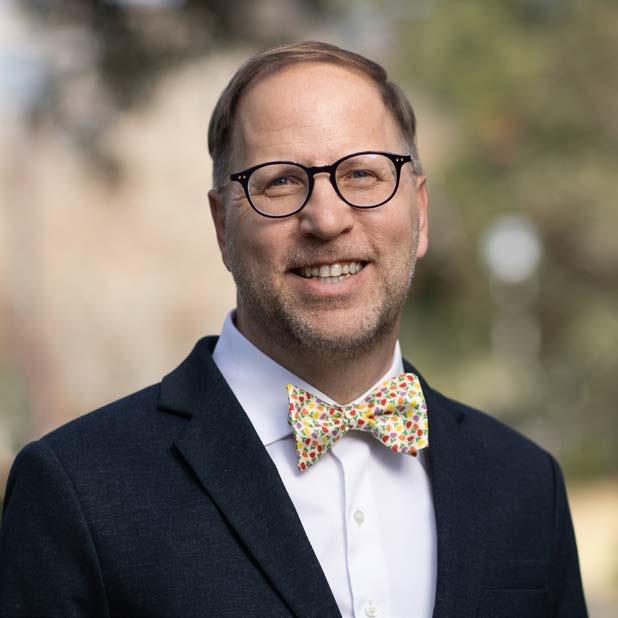

Dr. Gregory Tomso Vice President, Division of Academic Engagement and Student Affairs
Career Development and Community Engagement
Career Education
High-Impact Practices and Industry Engagement
Center for Academic Success
ArgoFirst
First Year Advising
Tutoring and Learning Resources
TRiO Student Support Services
Counseling and Psychological Services
Dean of Students
Argo Pantry
Campus Care Team
Care Services
Student Rights and Responsibilities
Educational Research Center for Child Development
Housing and Residence Life
International Affairs
Center for Asian Studies
Global Living
Global Quarter
Intensive English Program
Study Abroad
Kugelman Honors Program
Office of Design and Communication
Office of Campus Culture and Access
Student Accessibility Resources
Student Ombuds Office
Title IX Programs
Recreation and Wellness
Aquatics
Group Fitness
Intramural Sports
Outdoor Adventures
Sport Clubs
Student Engagement
Argo Arrival
Campus Activity Board
Commuter Student Services
Family Programs
Fraternity and Sorority Life
Homecoming
Student Government Association
Student Organizations
Student Health Services
Technology Support Services
University Commons and Event Services
DAESA completed its 2023-2028
Strategic Plan which includes five strategic priorities listed here:

Transformational experiences result from high-impact learning and other opportunities that focus on personal, intellectual, and professional growth and challenge preconceived assumptions or beliefs.
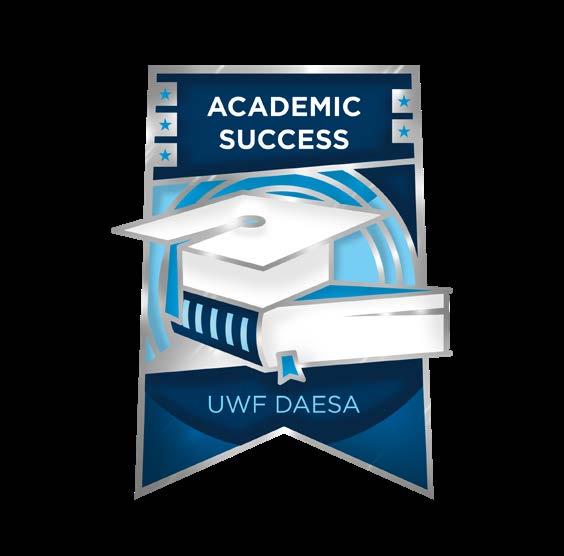
DAESA supports all UWF students by providing a wide range of services to support academic achievement and persistence.
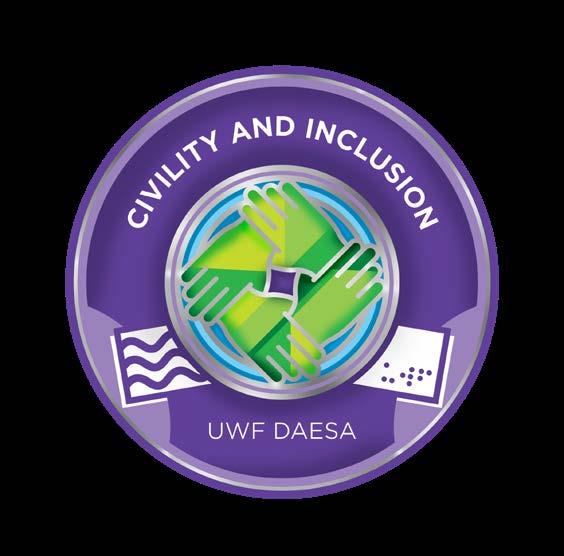
DAESA promotes a culture of inclusion and civility, creating an environment where everyone feels welcomed, respected, and valued.

DAESA focuses on prevention education and wellbeing promotion to encourage healthy and resilient students and staff.
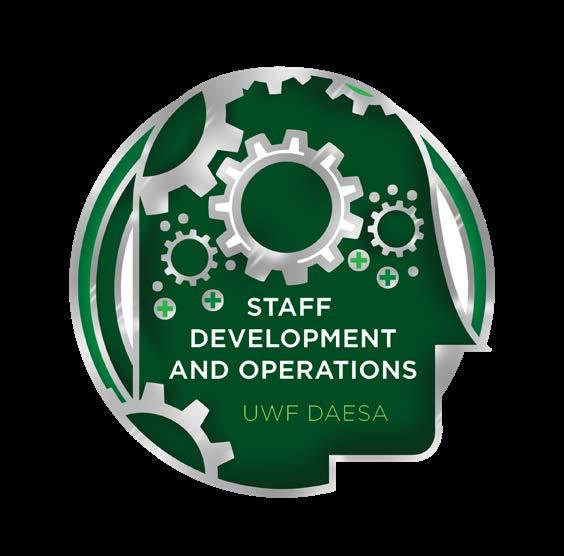
DAESA values staff development, community and collegiality, and retaining talented professionals. The Division routinely assesses operations to improve efficiency and effectiveness.
UWF earned the prestigious 2024 Carnegie Community Engagement Reclassification. Earning this reclassification signifies UWF’s commitment to local and regional communities. It also strengthens UWF’s position as a leader in providing faculty expertise and student talent to address community needs.
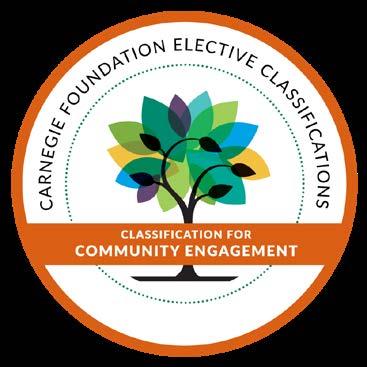
Read more in UWF Newsroom
UWF receives prestigious community engagement reclassification from Carnegie Foundation
“New Argo” is a website and accompanying newsletter that provides new students and their families with timely and actionable information related to academic success. Nearly half of all new students and 110 family members subscribed, and website and newsletter analytics show that students and families stayed engaged with New Argo throughout the year.
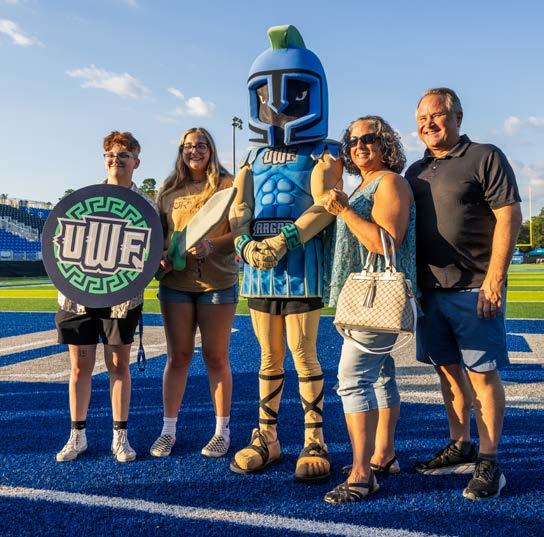
New Argo Engagement
7,300 Newsletter opens
3,791 Website views
The Zen Den combats student stress
Stress has been identified as one of the top five negative impacts on students’ academic performance at UWF and nationwide. Recreation and Wellness introduced the Zen Den as a space where students can relax and de-stress. Since its launch in late January 2024, the Zen Den has had over 400 appointments, comprised of more than 160 unique users.

Of those students who participated, 92% said their stress levels decreased after using the Zen Den.
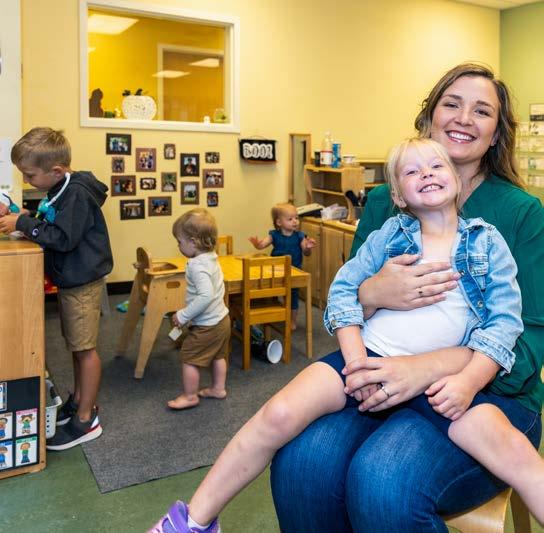
The grant allows student parents to persist in their degree while laying a lasting foundation for their child’s future education.
The Child Care Access Means Parents in School (CCAMPIS) Grant-1.6million
The Educational Research Center for Child Development (ERCCD) received a $1.6 million, four-year grant from the U.S. Department of Education to assist Pell-eligible and Pell-recipient student-parents with the costs of childcare. This is the largest grant the University has been awarded to offset childcare costs for students. In addition to securing the grant, UWF’s Educational Research Center for Child Development also received a perfect review score.
Student Health Services (SHS) marketing campaign led to higher usage
Student Health Services experienced a 32% increase in the number of new patients this year and a 7% increase in the total number of visits, in large part due to a campus-wide marketing campaign aimed at UWF’s large commuter student population.
90% of surveyed patients said Student Health Services helped them remain a student at UWF.
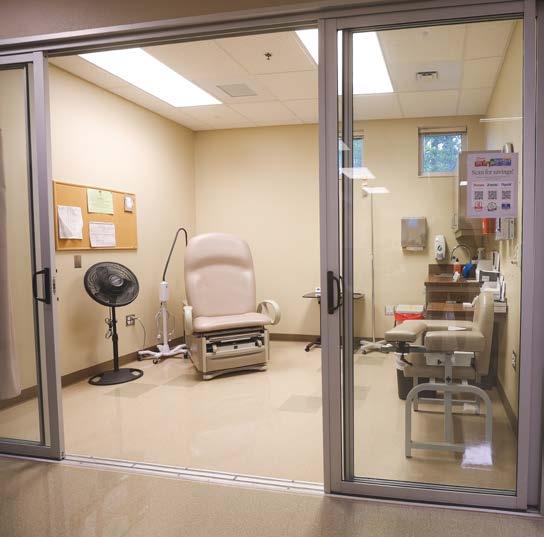
$1.6 million 4yr grant
DAESA launched its new Key Performance Indicator (KPI) dashboard to aid in strategic planning and to better track the division’s progress towards its strategic priorities. It displays multiyear data and data trends at the departmental and divisional levels, which allows divisional leadership to more confidently forecast and align resources.
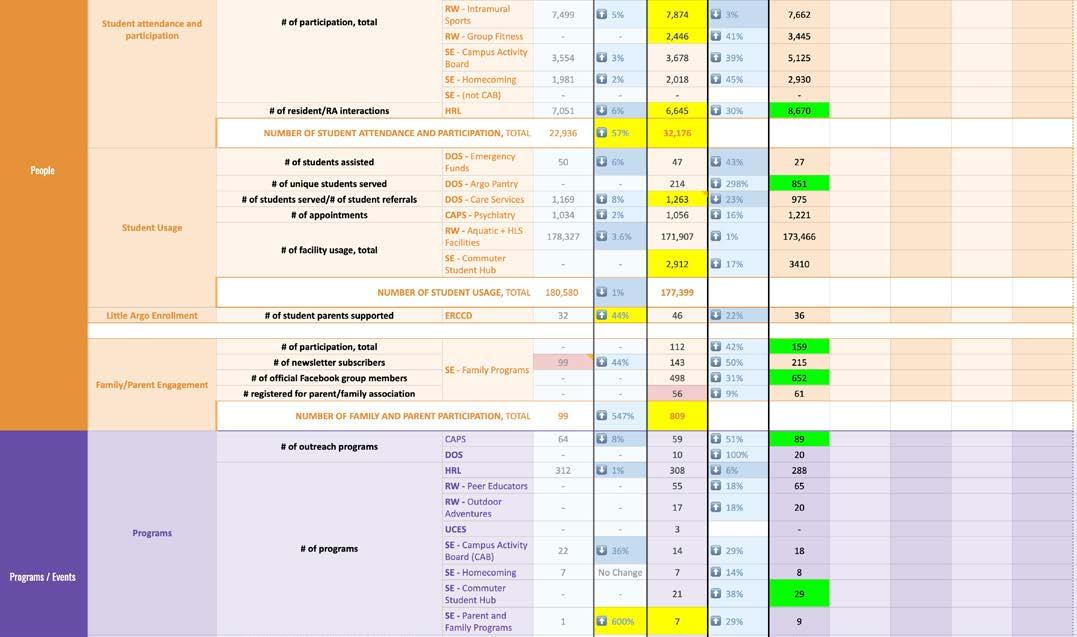
UWF produces well-rounded graduates who can lead and innovate. Transformational experiences are integral to achieving this goal, as they ensure that students are not only academically proficient but also equipped with the experience necessary to make meaningful contributions to their fields and communities.
Transformational Experiences prepare students to be engaged, thoughtful, and capable members of society. High-impact practices (HIPs) such as internships, research, and study abroad are prevailing transformational experiences across campus.
student leadership involvement student staff outcomes participation in High Impact Learning experiences educational workshops

1.1 1.2
Increase student participation in campus-wide transformational experiences. Assess developmental milestones within transformational experiences.
$80,000
was allocated to support HIPs at UWF, which provided access to HIPs for 987 students. Research shows that students involved in high-impact practices (HIPs) exhibit higher levels of learning success. By providing this funding, UWF empowers faculty and staff to create more engaging learning experiences that ultimately foster student success.

Student enrollment in some DAESA programs increased at higher rates than enrollment at UWF

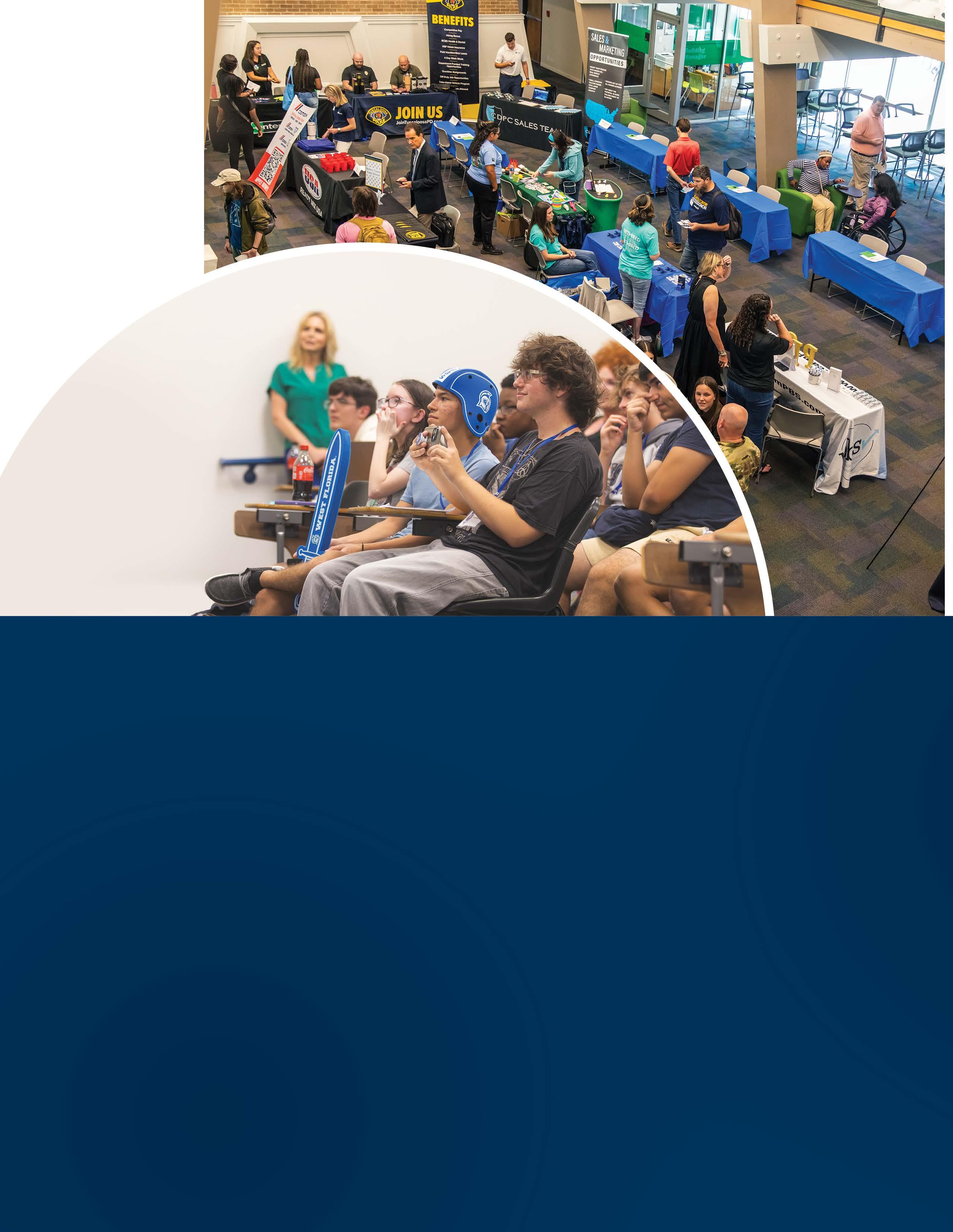
Kugelman Honors Program (KHP) Honors Summer Institute expanded capacity by 17%
Two areas increased access to Transformational Experiences by offering approximately 27% more scholarships than the previous year.
307
# of Scholarships awarded by area: Scholarships awarded
• 66 Kugelman Honors Program Scholarships awarded
• 241 International Affairs scholarships awarded
The Office of International Affairs continued working to increase enrollment and accommodate the rising number of students. International undergraduate student enrollment was up by 45% and international graduate student enrollment was up by 110%.
The Kugelman Honors Program facilitated more programming through faculty, staff, and student initiatives.
60% increase
CDCE welcomed 1,483 students at career events such as the Part-time Job Fair, All Majors Career and Internship Fairs, as well as the professional school and graduate school expos.
Students sought social connection and co-curricular professional and personal development through Student Organizations.
3,151 Registered Student Organizations Members
Student Involvement Awards
Career Development and Community Engagement (CDCE) worked with 3,471 students who scheduled appointments or dropped in for career support services.
Students 3,471
Increased access to job and internship postings for our students in Handshake, UWF’s online career management database.
100,270 Jobs posted in Handshake 32% 23,068 Internships posted in Handshake 44%

Maggie Brown International Studies and Art History major
Traveling to Ghana has given me a deeper appreciation of West Africa. I will never forget their kind generosity and hospitality that allowed me to not only experience but immerse myself in their rich culture and traditions. It has inspired me to connect more with the West African international students on campus because I was able to learn more about their culture and my own.
This study abroad trip has also encouraged me to consider professional opportunities in West Africa.
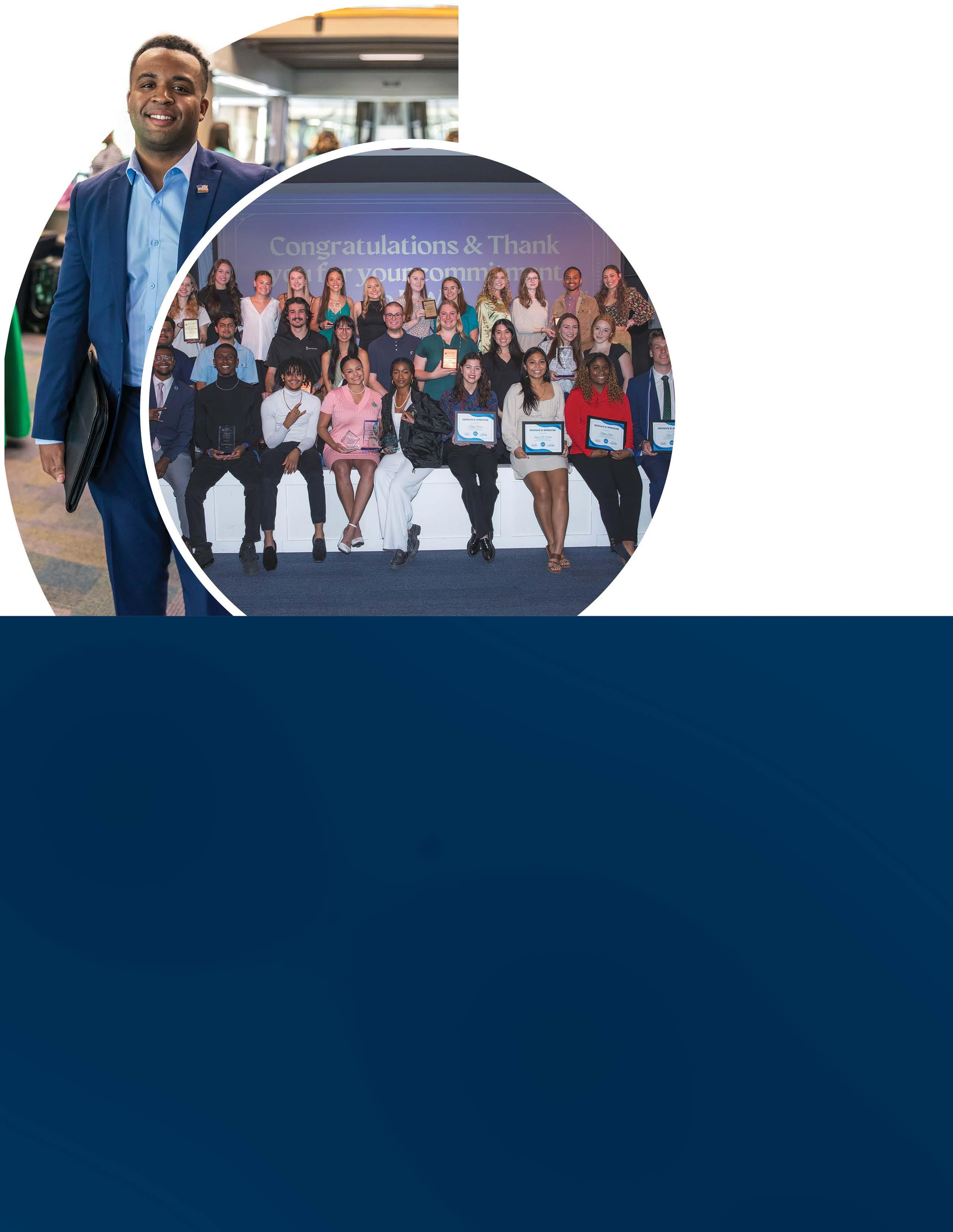
Why these numbers matter
National studies show that exposure to HIPs increases students’ learning, retention and overall sense of belonging.
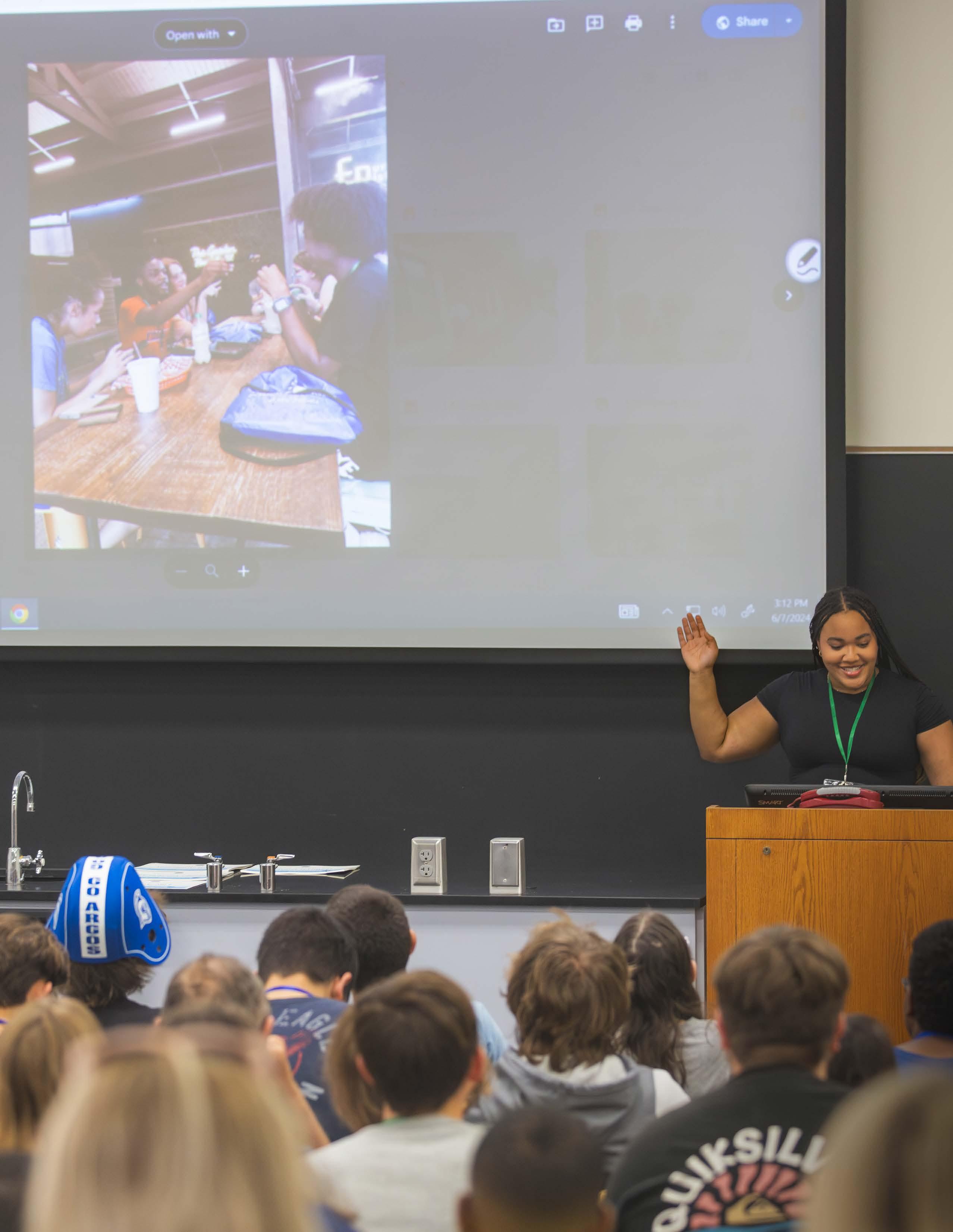
Honors Summer Institute (HSI) is a one-week residential program for rising high school juniors and seniors, focused on college readiness and personal development.
This past year, the UWF Kugelman Honors Program celebrated HSI’s third year. Due to increased demand, Honors expanded its capacity by 17% to welcome as many interested students as possible. Honors enhances student academic performance and retention at UWF, and HSI helps recruit high-achieving students to our institution. This year, UWF’s incoming first-year class included multiple HSI participants who already had a strong connection to UWF through their summer experience.
The Intensive English Program (IEP) provides language instruction to individuals who wish to improve their English proficiency. In response to the growing number of international students, Anayet Etxegibel Riezu, a Kugelman Honors graduate assistant, built a partnership program that connected Honors and international students where Honors students in need of community service hours tutored IEP students in English. The partnership was based on research showing that encouraging domestic students and international students to interact and engage with each other is known to positively impact academic success and a sense of belonging for both groups.
The IEP students who engaged in tutoring progressed much faster in learning English than their peers who did not participate in this tutoring partnership.
The Kugelman Honors program, faced with record first-year student enrollment, instituted a peer mentorship program, hiring 15 students to work with First Year Experience instructors and program staff to support the incoming cohort. As a result of this new initiative, there was a 5% increase in the retention of students from Fall 2023 to Fall 2024.
DAESA aims to strengthen campus partnerships to enhance opportunities for students. For this project, the Pensacola Museum of Art (PMA), University Advancement, Kugelman Honors, faculty, and a community supporter collaborated to create an interdisciplinary learning experience outside the classroom. The Kugelman Honors program, in partnership with University Advancement, facilitated the installation of the Lincoln Bronze from PMA in Pace Hall at the request of donor Don Partington. They also developed a semester-long lecture series, Honors Colloquium, focused on Abraham Lincoln, which included a study away trip to follow Lincoln’s path. When some students faced financial barriers to travel, Don Partington generously donated scholarship funds to enable them to participate.
“Abraham Lincoln,” by Daniel Chester French, modeled in 1916, cast in 1991, bronze, was a gift to the PMA permanent collection from Don Partington and Vaughan Hendrick.
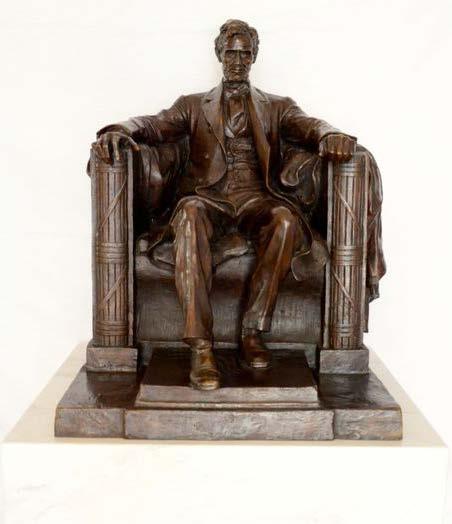
UWF graduates who use academic support services persist through college at higher rates and are more likely to graduate on time. Additionally, these students are better prepared to contribute positively to their professions and communities. As they enter the workforce or pursue further education, they bring with them not only their academic knowledge but also the skills and resilience needed for success.
KEY PERFORMANCE INDICATORS (KPIs)
Academic Progress Rate academic checkpoints participation in academic success programs

2.1
Improve academic success outcomes.
2.2
Expand programs and services to better manage student enrollment and persistence beyond the first year.
DAESA academic support services started the year strong by preparing for a 24% increase in the size of the first-year class and higher numbers of continuing students due to UWF’s successful retention efforts.
Academic Checkpoints
4,579
Academic alerts issued
45,743 36.7%
Faculty responses to academic checkpoints
13%
Group Degree Planning: Serving more students with improved outcomes.
The Group Degree Planning program launched two years ago and continued to expand through a coordinated effort by first-year advisors. Advisors met with all 1,705 active students within a crucial 3-4 week time frame prior to registration. This process proved to be successful as 84.35% of registration PINs were released
First Year Advising
9,602
First Year Advising appointments
4,061
Registration PINs released 20%
1,273
Students released to their colleges
19%
This increase is due to the colleges asking for students to be released regardless of their earned credit.

during the Fall 2024 cycle compared to 76.84% the prior fall.
74.62% of students had registered for classes by the Monday after priority registration compared to the previous year’s 65.23%. These gains were achieved even with significant increases in the student population, meaning more students were seen in the same amount of time with significant improvement in outcomes.
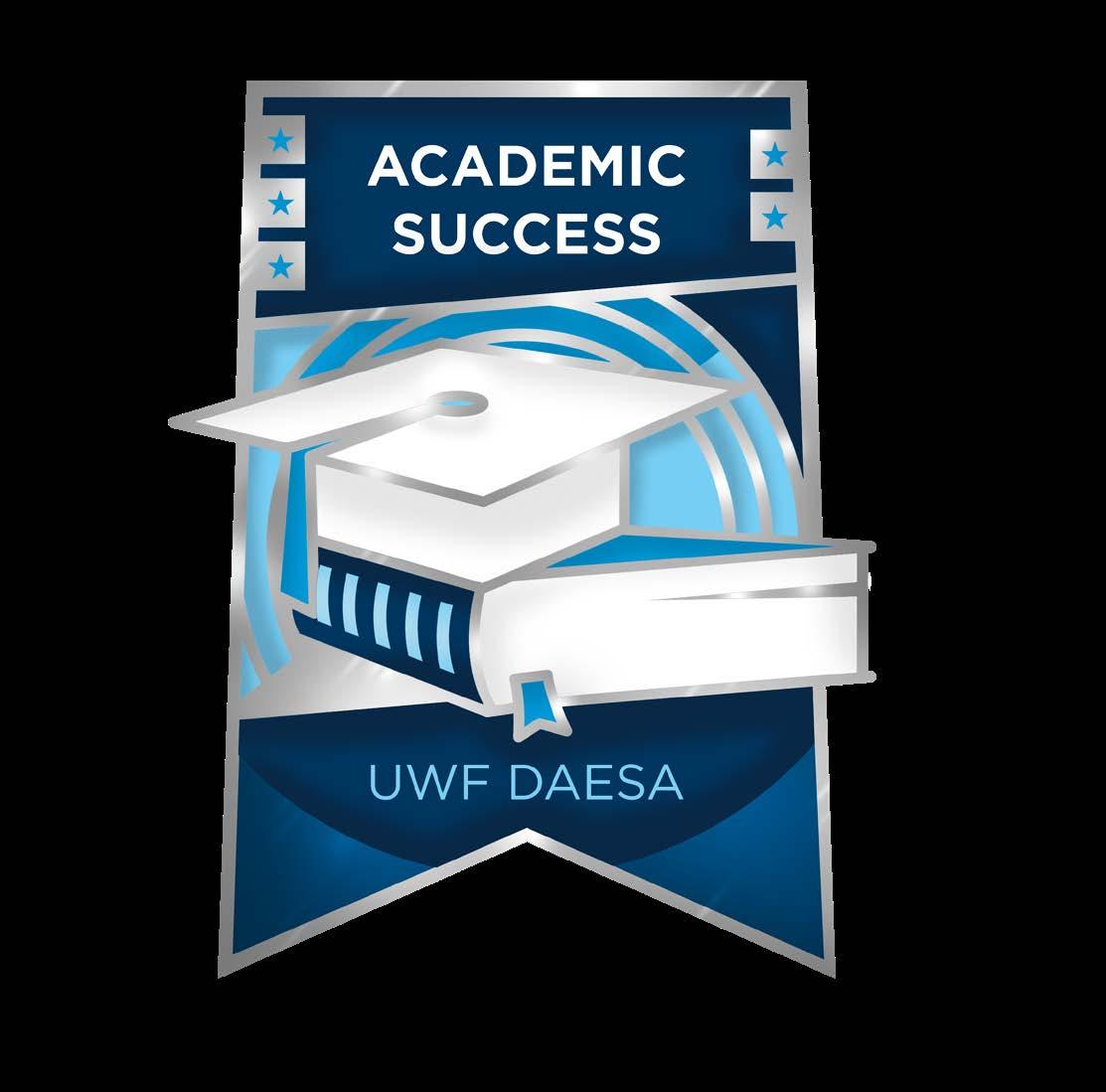
97% 95%
of ArgoFirst freshmen were retained into their second semester of TRiO freshmen were retained into their second year 10% Retention
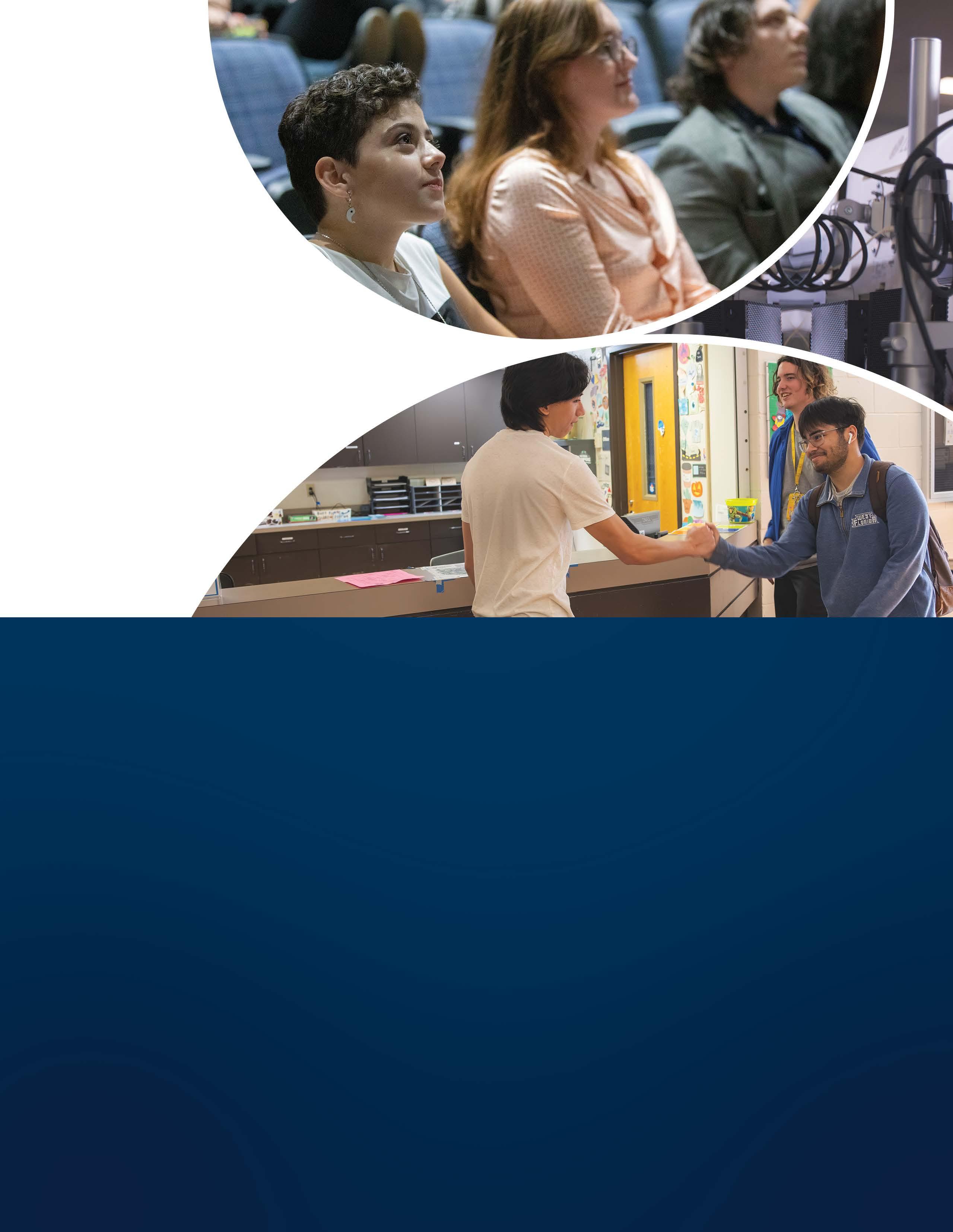
TRiO offers services to 200 first-generation, low-income and disabled students. TRiO uses a datainformed approach to identify students who are experiencing academic and/ or financial challenges and assist in resolving student issues.
18 TRiO students were on the President’s List Scholarships
36 TRiO students were on the Dean’s List
The UWF Center for Academic Success supports first-to-second-year retention, known as academic progress rate or APR, through student support outreach, early warning interventions, and financial support.
$11,750 in scholarships awarded ArgoFirst students received financial support toward Spring academic costs.
Why these numbers matter
Early intervention increases student retention and paves the way for on-time graduation.
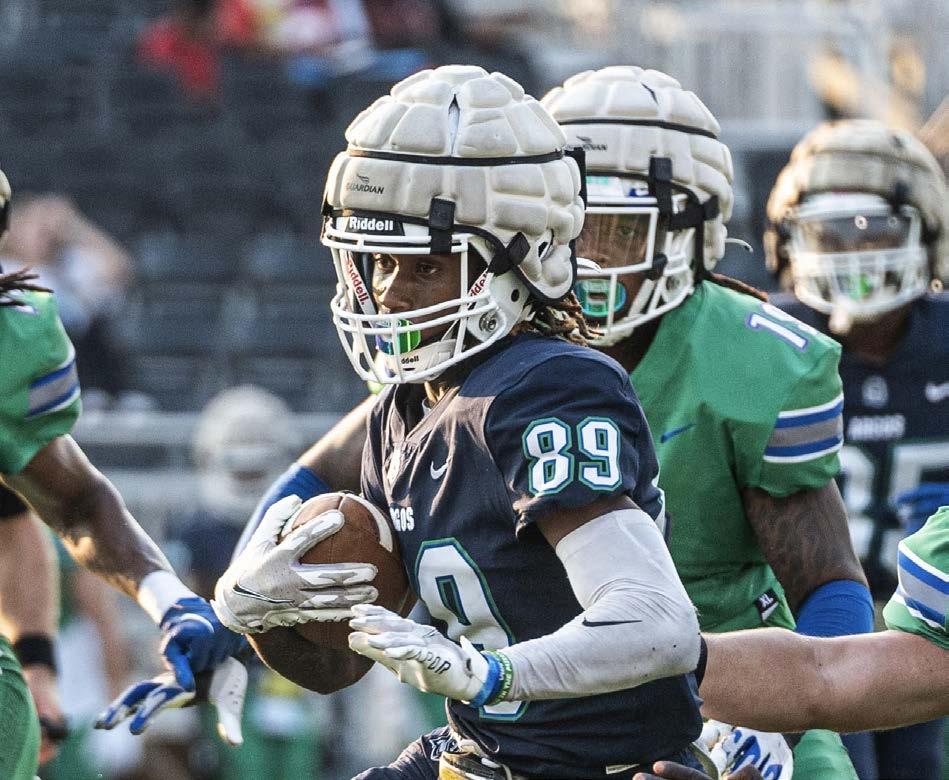
STUDENT SPOTLIGHT, OUTSTANDING FIRST-YEAR STUDENT AWARD WINNER
Patrick Delcour Electrical Engineering major
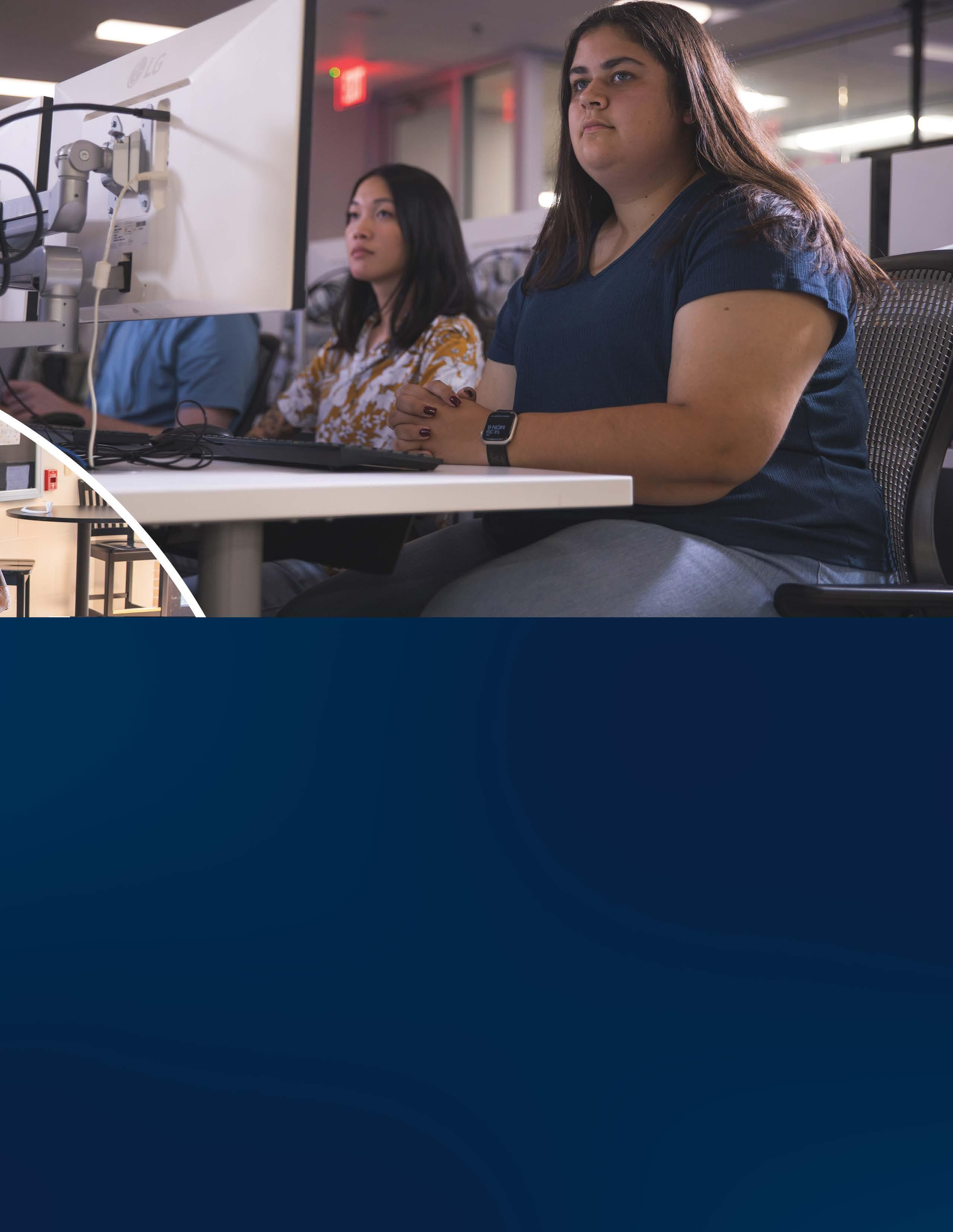
87.7% Academic Progress Rate
2023/24
92.7% International Academic Progress Rate
The International student undergraduate Academic Progress Rate is included in the overall 87.7% APR for UWF.
Patrick is a first-year student majoring in Electrical Engineering who earned a 3.94 GPA while also representing UWF on the Football team. His nominator for the Outstanding First Year Student Award said that he is the ultimate example of a student-athlete who is dedicated to his academics and balances the demands of the classroom along with the rigors of the UWF football program.
Demonstrating his dedication to his studies, he logged 85 study hall hours during the fall term. Patrick is a participant in TRiO Student Support Services and the Take Stock Collegiate Scholars programs.
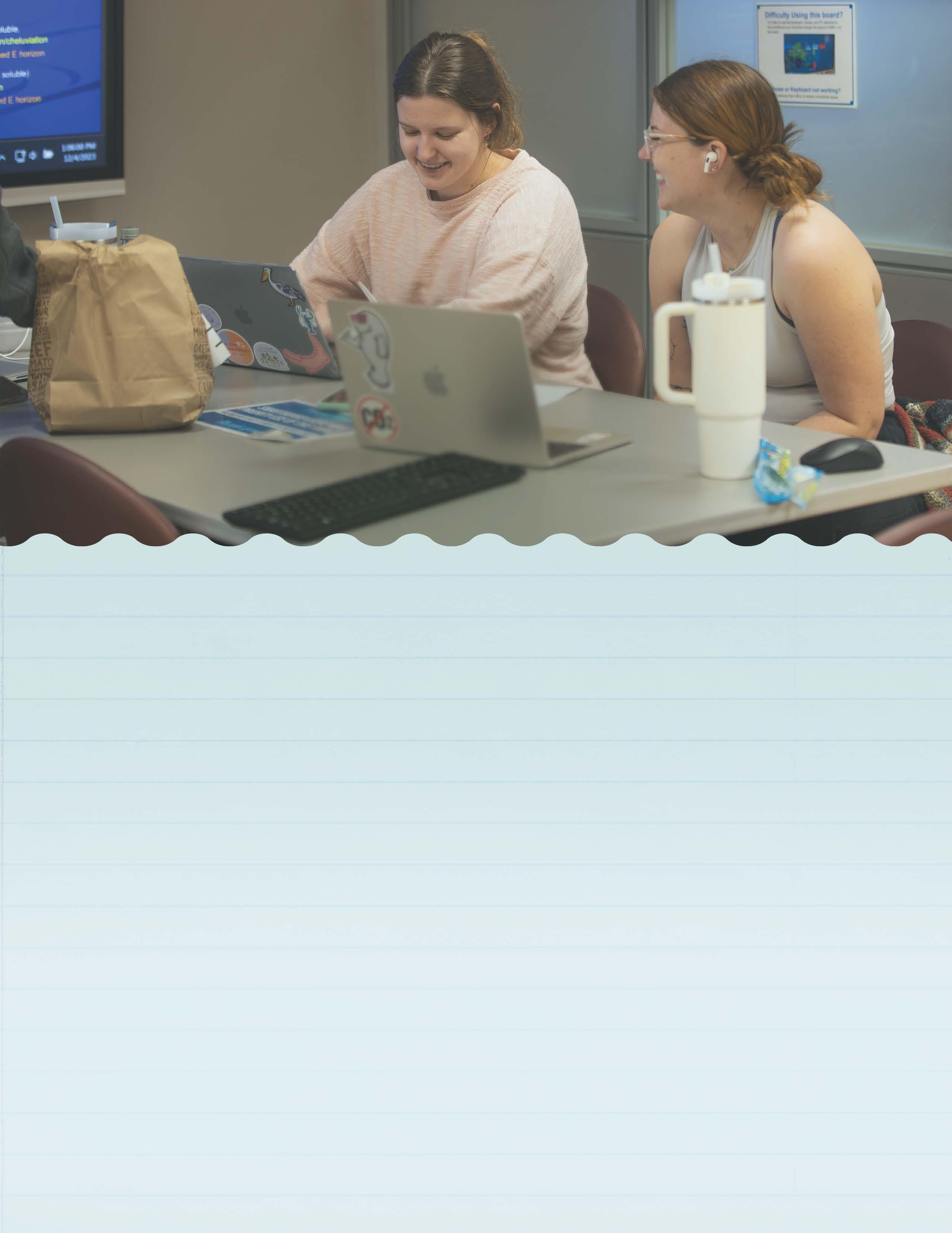
The ArgoFirst LLC combines the benefits and convenience of on-campus living with tailored academic support for first-year students. ArgoFirst services include workshops, tutoring and advising sessions held in Martin Hall. While the main focus of the ArgoFirst program is on academic success, other outcomes include developing skills such as time management, study strategies, and stress management. These skills contribute to students’ overall development, preparing them for the challenges of both their academic and professional lives. 94% of ArgoFirst students earned above a 2.0 GPA in their first semester.
TLR was asked to assist with PCB3103 (Cell Biology) due to the course’s high Drop/Fail/ Withdrawal (DFW) rate. TLR held 42 tutoring sessions for the Fall semester and 90 sessions in the Spring. The DFW for Cell Biology rate dropped 5% from Spring 2023 to Spring 2024.
The academic checkpoint process asks faculty to identify students struggling academically at various times throughout the semester. The Center for Academic Success (CAS) uses faculty alerts to intervene and offer support to students on a case-bycase basis. As UWF’s student population has increased in the past year, so has the number of alerts.
4,579 alerts were issued this year, a 17% increase from last year.

Jack Finley Freshman Mechanical Engineering major
STUDENT TESTIMONIAL
Academic coaching has helped me in many ways but to put it simply, it has made me succeed where I would have failed alone. “ “
UWF’s mission to serve the public rests on a strong foundation of democratic values including civil discourse and a commitment to equal access. Our civility and inclusion efforts create a supportive, and respectful environment at UWF. They also benefit our community by fostering a culture of respect and understanding, promoting accessibility and equity, and preparing students to be effective and empathetic citizens.
training and development campus and community partnerships
program participation

3.1 3.2
Build an inclusive work community.
Increase retention and graduation by offering inclusive programming and services.
SAR offered 15 signature programs, engaging approximately 140 faculty and staff members. These programs focused on the legal requirements of providing academic accommodations to students. Students also participated in training to understand that a key part of academic accommodations is the interactive process, which requires students to communicate clearly, respectfully, and regularly with faculty to ensure reasonable accommodations are implemented.
At Spring commencement, 30 students donned the new SAR graduation cords, symbolizing the values of inclusion, acceptance, and empowerment.
Title IX programs established a faculty fellow position to enhance the informal resolution process between parties engaged in a formal Title IX complaint. The informal resolution process promotes conflict resolution strategies, including skills development in areas such as respectful disagreement and negotiation.
Title IX Programs provided outreach to 100% of reporting parties which resulted in 46% of Complainants completing an initial intake meeting and 38% receiving supportive measures from the University.
The Office of Campus Culture and Access (OCCA) promotes civility, equal access and a respectful campus culture, with a particular focus on fostering civil discourse. Events offered or supported by OCCA include:
Campus Conversation: Israeli-Palestinian Conflict
Extremist Speakers Debate
› In partnership with Office of Public Policy Events (OPPE) and Speech and Debate
Electoral College Debate
› In partnership with Office of Public Policy Events (OPPE) and the Reubin O’D. Askew Department of Government
Holocaust Remembrance Event
› In partnership with College of Arts, Social Sciences and Humanities (CASSH), College of Business (COB), Usha Kundu, MD College of Health (UKCOH), Hal Marcus College of Science and Engineering (HMCSE) and Community Partners
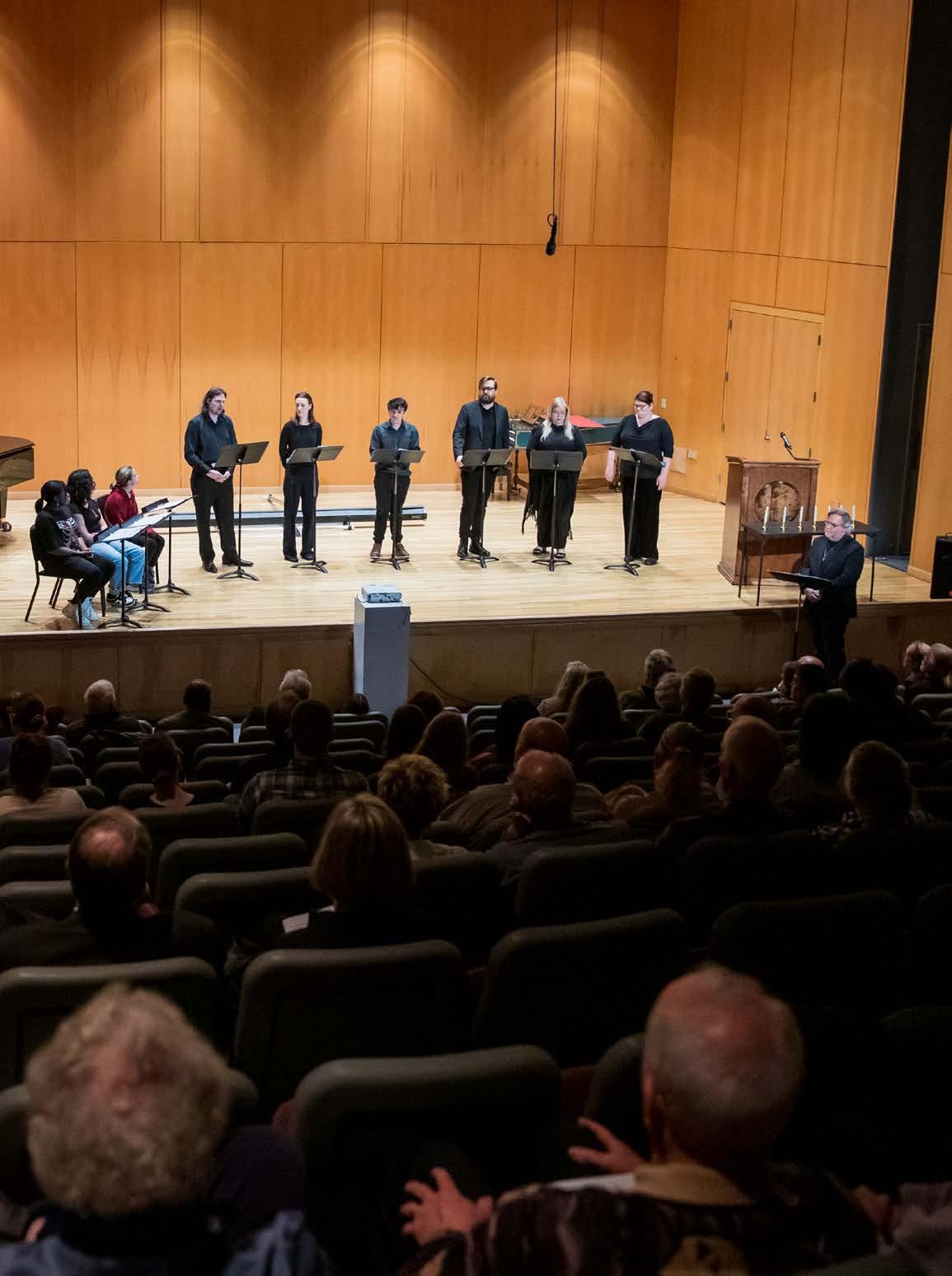
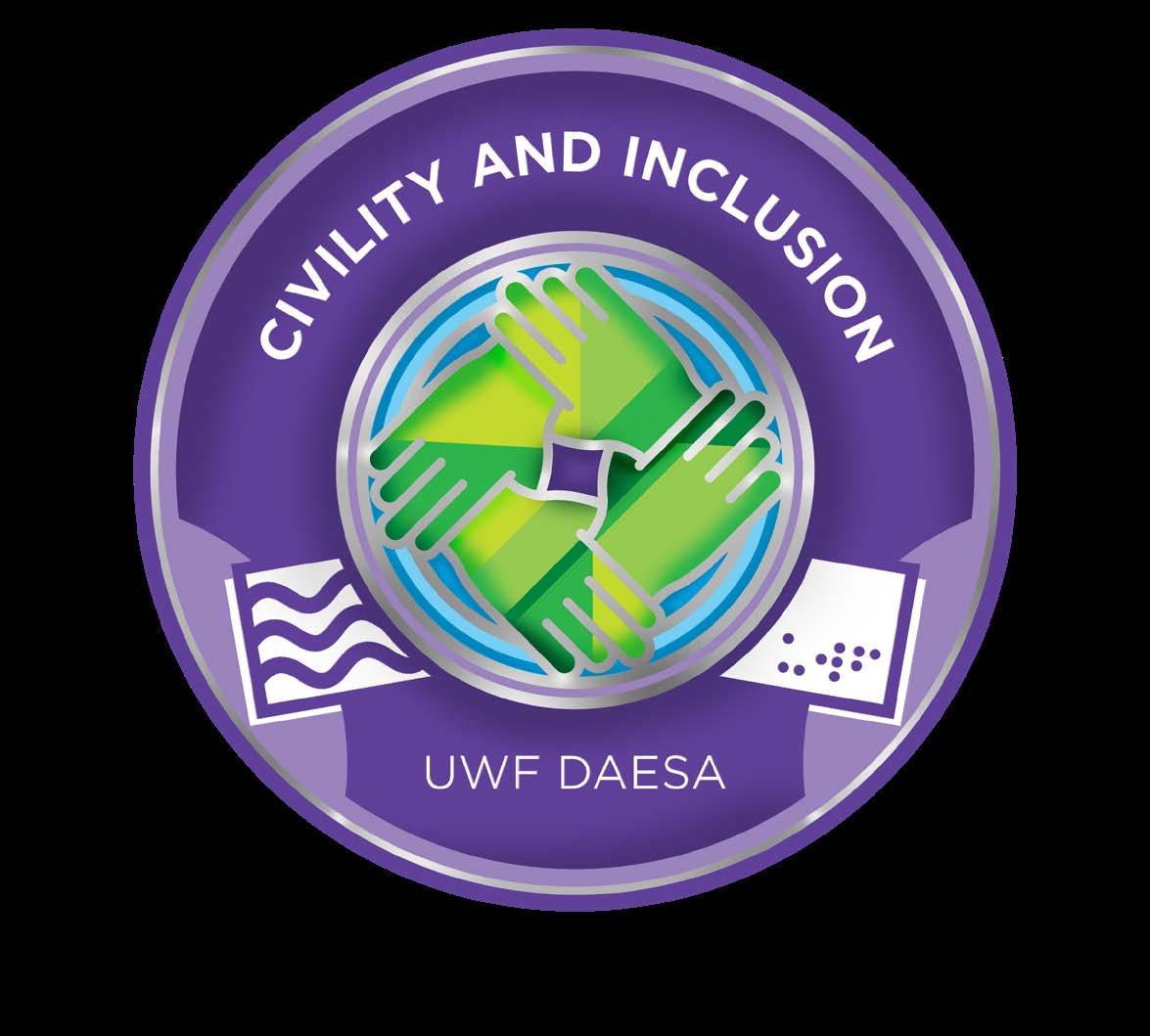
Every Thursday night, our domestic and international students spent time together during this highly popular event. Participants get to know each other while learning an international game or trying a new international drink.
39 70%

total events by Student Accessibility Resources, Title IX Programs and Counseling and Psychological Services
The Office of Campus Culture and Access (OCCA) encompasses Student Accessibility Resources, Student Ombuds and Title IX Programs. students accessed OCCA support services 754 21%
Students registered with Student Accessibility Resources received financial support.
12 students were awarded scholarships
Ceremony celebrating the 20TH anniversary of UWF Japan House.
Shigeko Honda, former director of Japan Center and current volunteer, received the Order of the Rising Sun award from the Consul General of Japan.
Student Accessibility Resources (SAR), Title IX Programs and Counseling and Psychological Services (CAPS) developed and held training sessions. Faculty and students’ peers are the primary touch points for many students, so by investing in these trainings, DAESA continues working to ensure a university-wide culture of providing equitable, supportive, and effective learning environments for all students.
SAR faculty training sessions 15 faculty and staff members reached with SAR training 140+ 186% students participated in Title IX Programs training sessions
1,570 65%
655 160% people reached with CAPS, SAR and Title IX Programs and trainings
30 students proudly donned the new SAR graduation cords at Spring Graduation.

UWF’s Title IX Program was accepted into the National Association of Student Personnel Administrators (NASPA) Culture of Respective Collective Cohort Program.
The Collective is an ambitious two-year program bringing together institutions of higher education who are dedicated to ending campus sexual violence and guiding them through a rigorous process of self-assessment and targeted organizational change.
Why these numbers matter
Promoting democratic values such as civil discourse and equal access ensure that all students have the opportunity to succeed.
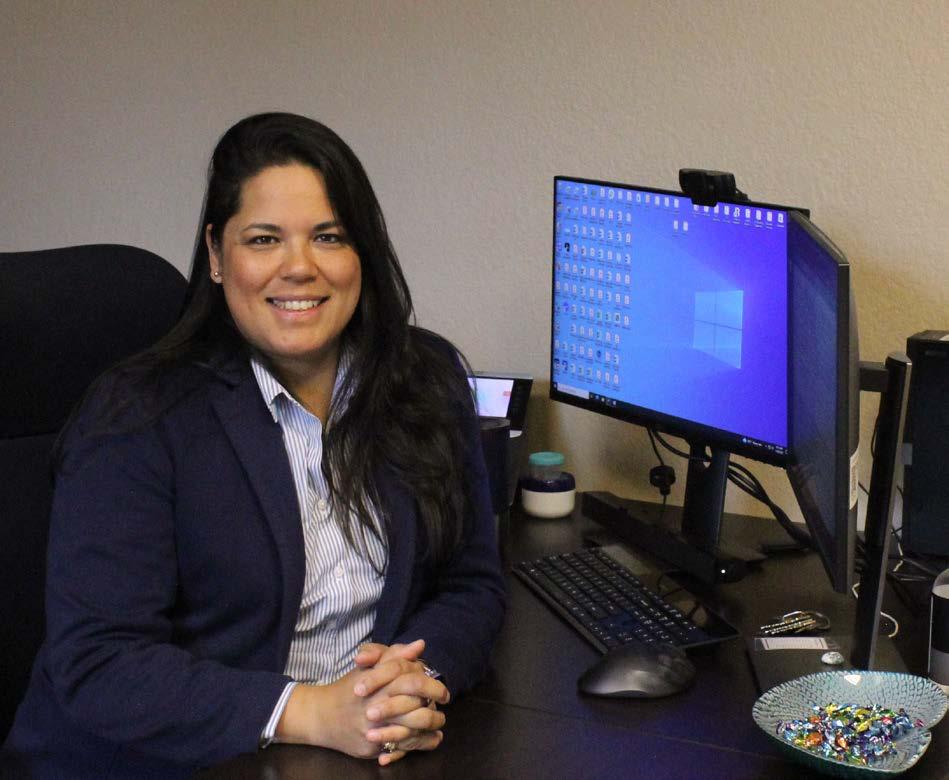
Director Osborn helped me to find solutions when I had issues with my meal plan exemption and housing accommodation. She was incredibly kind and fair; she always responded to all of my emails promptly, while thoroughly answering each of my questions.
I felt safe expressing my concerns to Director Osborn and she took my statements seriously.
After the disagreements were resolved, she sent a follow-up email to see if I was having any other issues. I likely would have withdrawn from UWF without Director Osborn’s assistance, and I am extremely grateful for the work she does.
—Anonymous
DAESA proudly fosters a culture of care in which students receive timely, professional assistance when faced with the challenges of college life. Our wellbeing programs and health clinics promote mental and physical health, which are crucial for academic success. When students feel cared for, they are more likely to engage positively with their education and campus community.
KEY PERFORMANCE INDICATORS (KPIs)
parent and family engagement Peer Educator outcomes
program participation and outcomes service usage

4.1
Create a culture of care reflective of the eight dimensions of wellbeing for students and DAESA staff.
4.2
Build student resilience.
Argo Pantry introduced new programming to reach more students, including a spring Farmer’s Market event. Over 3,635 items were distributed to students, all of which were purchased with funds donated to the Argo Pantry.
More than half of the students who came to the market had not engaged with the Argo Pantry prior to this event, and 87% of students served stated that the Argo Pantry helped them gain access to healthier food options.
A Bike Theft and U-lock campaign was deployed during Housing and Residence Life Safety Week in February. As part of this effort to reduce bike thefts on campus, Recreation and Wellness offered U-locks valued at $22 for $5 to current students. Students learned about campus safety and took active steps to protect their belongings.
DAESA is focused on creating intentional opportunities for students to engage in activities that promote wellbeing and build resilience. The division formed a Health and Wellbeing team that oversees the progress towards these goals. The team launched an incoming student health and wellbeing survey and is currently using the results to inform planning and programming.
The Dean of Students Office is tracking long-term resilience-based outcomes of students who engage with the office.
• 83% of students stated that the case manager made suggestions and provided advice that was relevant to their situation
• 66% of students had a plan for how to address their current concern/issue
• 83% of students felt confident in their ability to locate and seek assistance from other campus resources
Wellness Services employs and trains a team of student peer educators who participate in numerous campus events to share information and promote signature Wellness events such as Project Condom and Take Back the Night. Peer educators also host events including Brain Games, Feel It Out, Peers and Careers, Wellness Walk, Fudge ‘N the Numbers, and Love Thy Argo Peer Educators collaborated with departments in large-scale events, and reached 1,244 more students (67% increase from last year).
In spring 2024, student participation in SGA elections soared compared to previous years. In total, 1,822 students (approx. 20% of the student population) voted in the general SGA election, marking a more than 500% increase from the previous year prior and the second-highest number of votes ever cast in a UWF SGA election.
Notably, four students who did not win seats in the general election returned to fill vacant seats within the Senate. This reflects a genuine interest in serving the greater student body through a spirit of service to UWF.
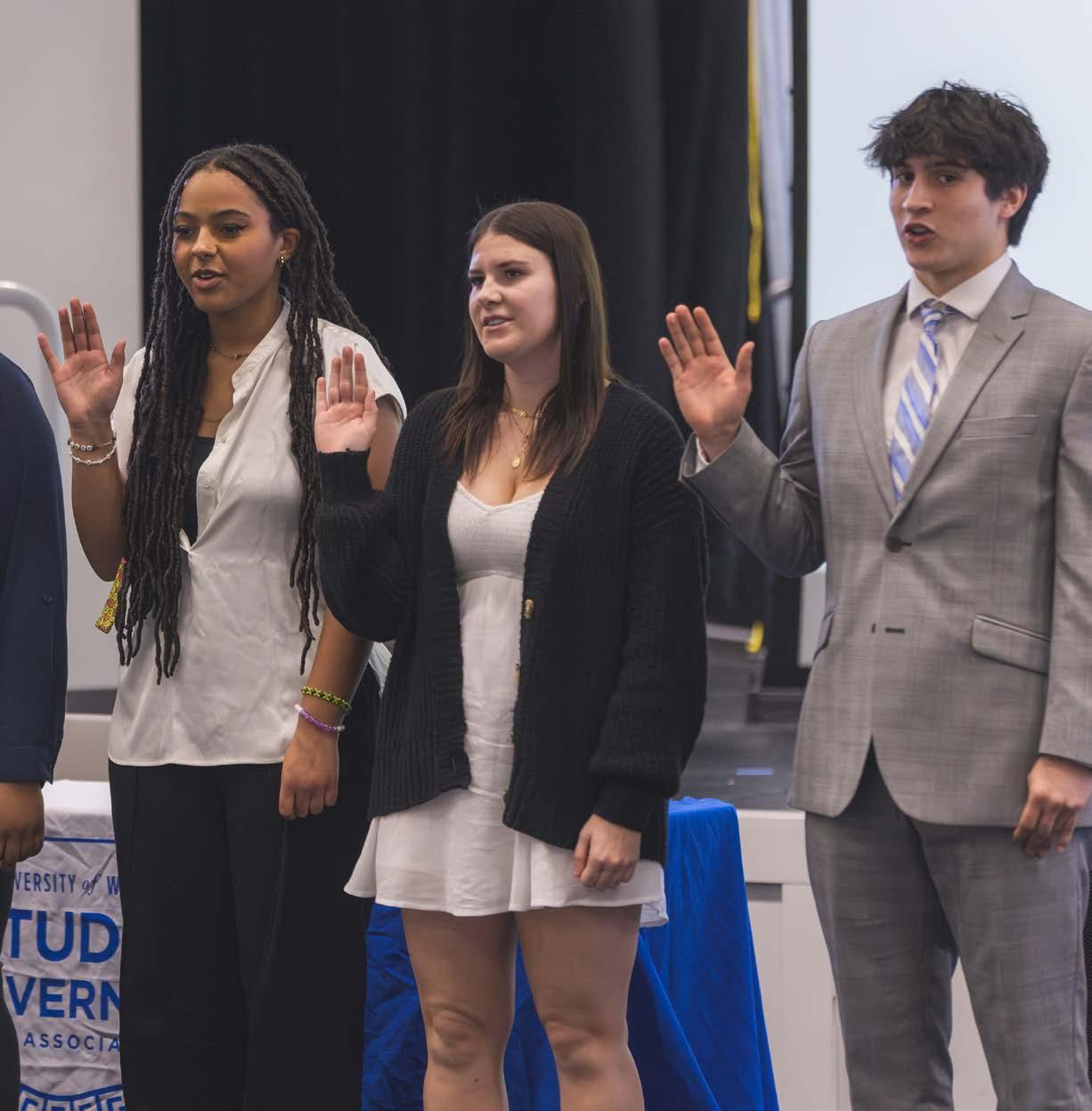
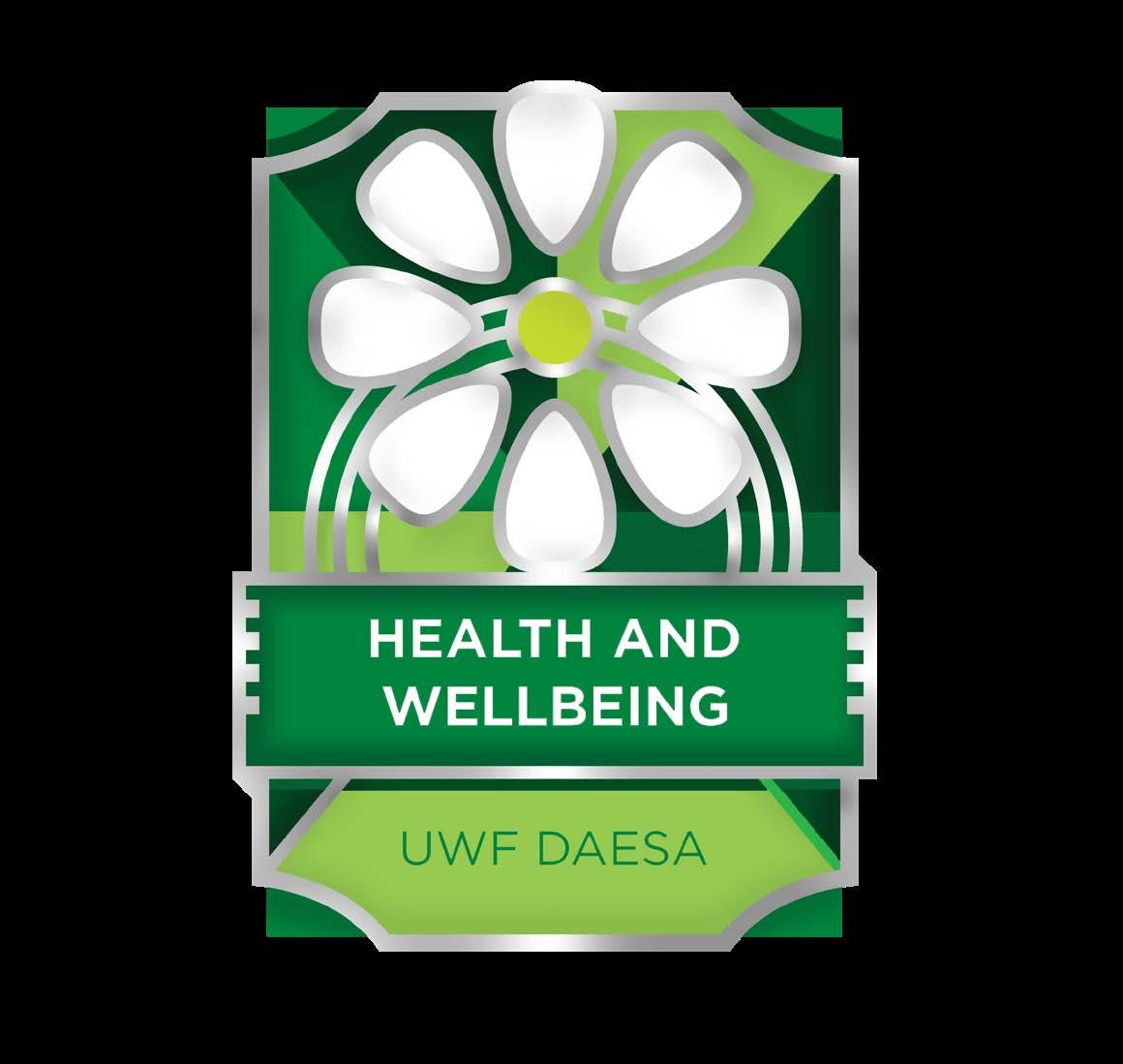
Student participation increased from the previous year across most DAESA areas.
35,569 11%
total student attendance and participation in health and wellbeing programs

Why these numbers matter
National data consistently show that wellbeing is the primary foundation for student success.
Students who actively engage with Recreation and Wellness (RecWell) programs are more likely to stay at UWF to complete their degree
Students who regularly attend the gym have a higher GPA than those who do not regularly attend.
Students who participate in group fitness classes are more likely to graduate in the anticipated four years
Program participation and outcomes
The Commuter Student Hub hosted 3,410 commuter students.
Counseling and Psychological Services impacted 2,806 total attendees through their outreach programs.
Housing and Residence Life staff logged 8,670 resident interactions.
Recreation and Wellness had 19,549 points of student engagement.
The University Commons and Event Services Argo Galley Gameroom served 1,134 total students through the equipment checkout process.
STUDENT HEALTH VISITS
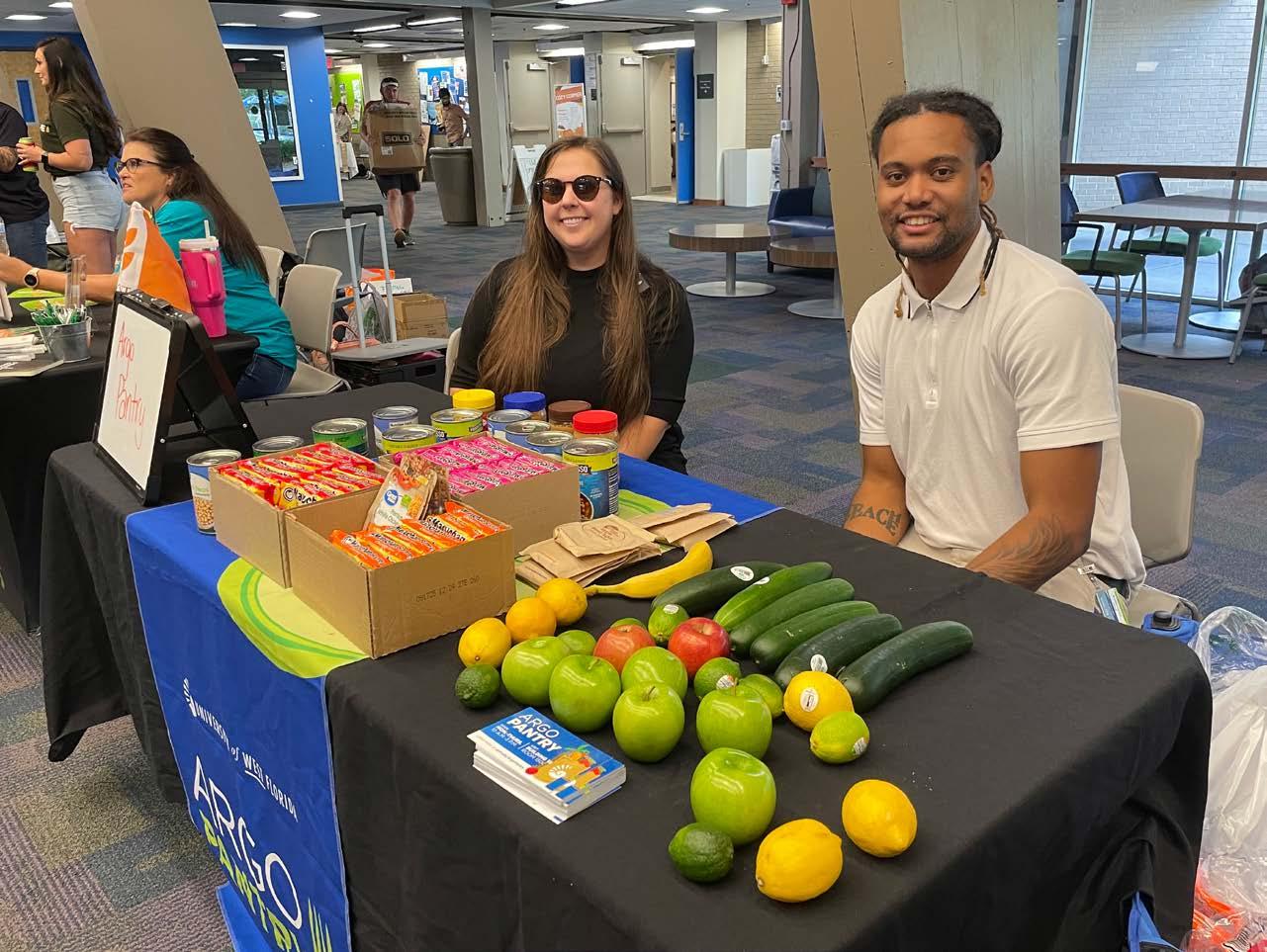
Anonymous Emergency Assistance Scholarship Recipient Dean of Students Office
$16,471 in emergency funds were allocated to 23 students. These funds were used to help students who struggled with food insecurity, housing, or paying for essentials things such as power and utilities.
Without emergency assistance from the Dean of Students Office, I would have withdrawn from UWF.
—Anonymous

and
659 The Argo Families Facebook page now has 659 parent and family members, a 40% increase compared to the Spring 2023 semester. This platform continues to serve as an effective way for parents and families to communicate with each other and share important information.
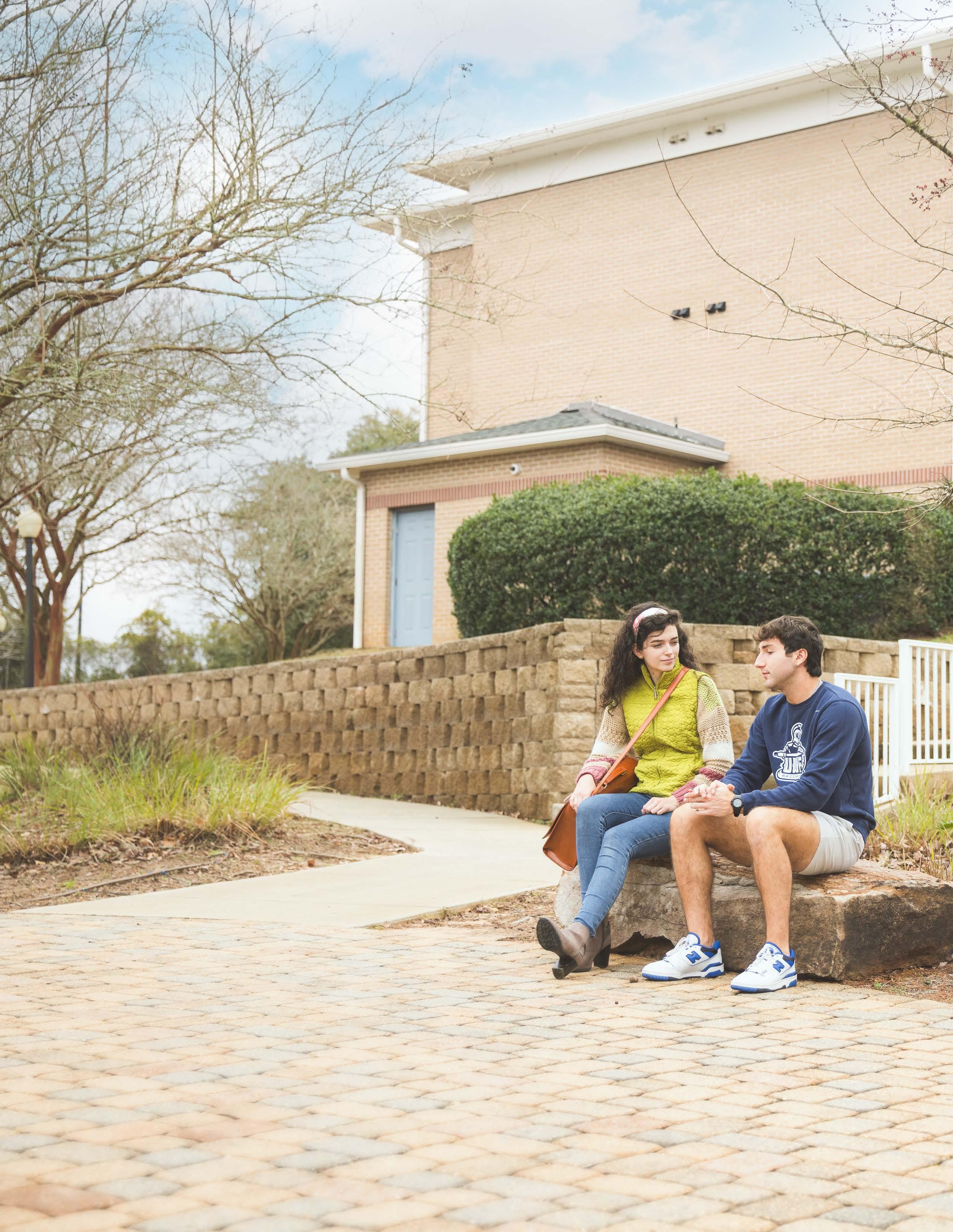
DAESA achieves student health and wellbeing outcomes by utilizing peer education, a national best practice.
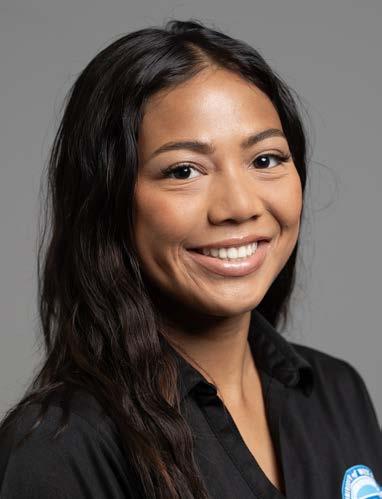
Kyanna Mai served as the student body vice president from 2023 to 2024. Her leadership focused strongly on student wellbeing, which was part of her and SGA President Ariauna Range’s initiative of H.O.P.E., which stands for health, opportunities, pride, and experiences. During a Q&A session, Kyanna shared her insights about barriers to wellbeing and her work to remove those barriers.
Q: Tell me about yourself and your leadership journey at UWF.
A: I’m from Jacksonville, FL, and I started at UWF at 17 as a nursing major. After an internship at the David Geffen School of Medicine at UCLA, I switched to health care administration. Before becoming the Student Government Association (SGA) Vice President, I was the Freshman Committee Chair and then the Budgets and Allocations Chair.
Q: How did your role as Vice President shape your understanding of student needs?
A: Part of SGA’s requirement is that we volunteer to work a certain amount of events per month. A couple of events that I volunteered for were mental health-related, and in talking to students at those events, I gained valuable insights into what students need and what prevents them from accessing resources.
One of those insights gained while volunteering prompted Kyanna to create a virtual tour and staff interview for Counseling and Psychological Services (CAPS). The video shows student parking, the office’s location, and the waiting area. It also introduces CAPS staff and shows them explaining the different services available to students and how to access them. The video’s goal was to normalize the experience for students and remove barriers.
Q: How did you address mental health awareness through your virtual tour of the Counseling and Psychological Services?
A: The video aimed to demystify and normalize the counseling process by showing my own participation. Many students shared concerns about not knowing how to approach counseling. By modeling the experience, I hoped to ease their fears and demonstrate that the staff is approachable and eager to help.
Kyanna shared the video with CAPS for posting on their social media account, allowing them to showcase that their services are endorsed by SGA, even after Kyanna’s term concluded
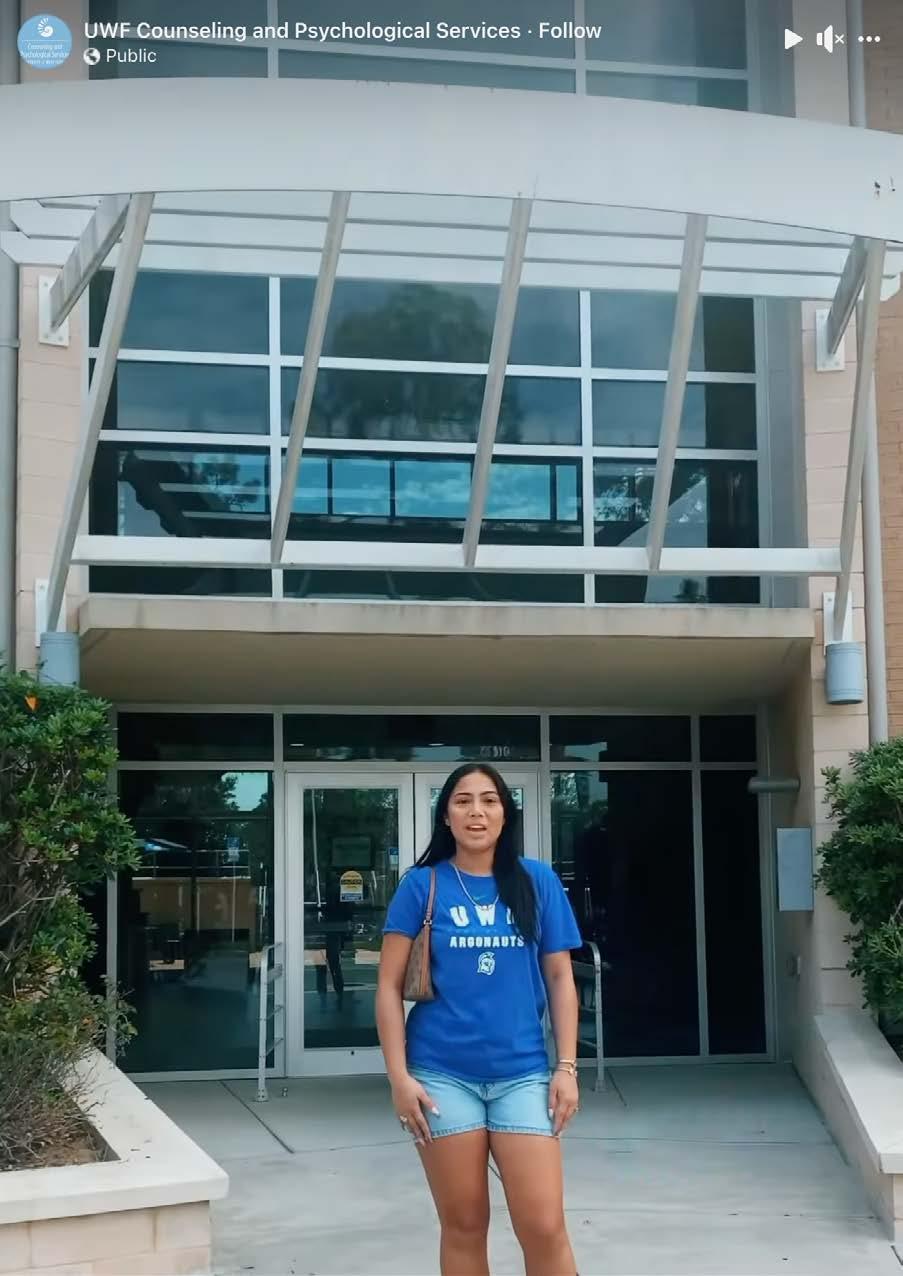
DAESA is a special place, staffed by special people. The division fosters a sense of togetherness along with a sense of pride in reaching our common goals. In order to best serve our students, we offer a wide variety of staff development opportunities, including travel, workshops, leadership training, and peer mentoring. Students benefit from staff who feel connected to one another and to our mission.
KEY PERFORMANCE INDICATORS (KPIs) staff retention training and development operations assessment activities technology and marketing analytics Promote effectiveness of the Division.

5.1 5.2 5.3
Create a staffdevelopment focused culture. Engage in responsible and equitable stewardship of human, fiscal, and physical resources.
To maximize use of DAESA services, support recruitment of prospective students, and promote opportunities for donor engagement, the Office of Design and Communication (ODC) set a goal to audit, adjust or rebuild all DAESA websites by December 2025. The DAESA website refresh plan is now 50% complete. This process has reduced the burden on departmental staff to maintain Content Management System (CMS) training and ensured adherence to UWF web governance and best practices.
Completion overview:
• Nine website rebuilds were completed, including some of DAESA’s largest departments: Career Development and Community Engagement (CDCE), Dean of Students Office (DOS), First Year Advising (FYA), Housing and Residence Life (HRL), Office of Campus Culture and Access (OCCA), Student Accessibility Resources (SAR), Student Ombuds, Title IX Programs, Tutoring and Learning Resources (TLR).
• The Kugelman Honors Program (KHP) and Student Health Services (SHS) website builds were completed in the previous assessment cycle and their performances have been tracked and analyzed. Assessment showed:
› KHP: 332% increase in engaged sessions* and an engagement rate of 58%. A healthy engagement rate is around 60%
› SHS: 7,461% increase in engaged sessions* and an engagement rate of 58%.
The number of broken websites and links decreased, and compliance and accessibility rates improved.
*Engaged sessions last longer than 10 seconds, have a key event, or have at least two pageviews.
The DAESA Extended Cabinet includes staff in leadership positions throughout the division who do not report directly to the Vice President. Monthly meetings feature guest speakers from around campus and facilitated discussions designed to engage DAESA leaders, equip them with tools to guide their areas, improve efficiency, and collaborate for greater success.
Technology service requests increased by 36%. Request tickets addressed migration to Windows 11, office moves, and new staff set-ups. Multiple DAESA departments and their staff were temporarily relocated this year due to extended building maintenance projects, including new roofs and new HVAC systems in some areas. These extenuating factors contributed to increased demand for technology support within the Division.


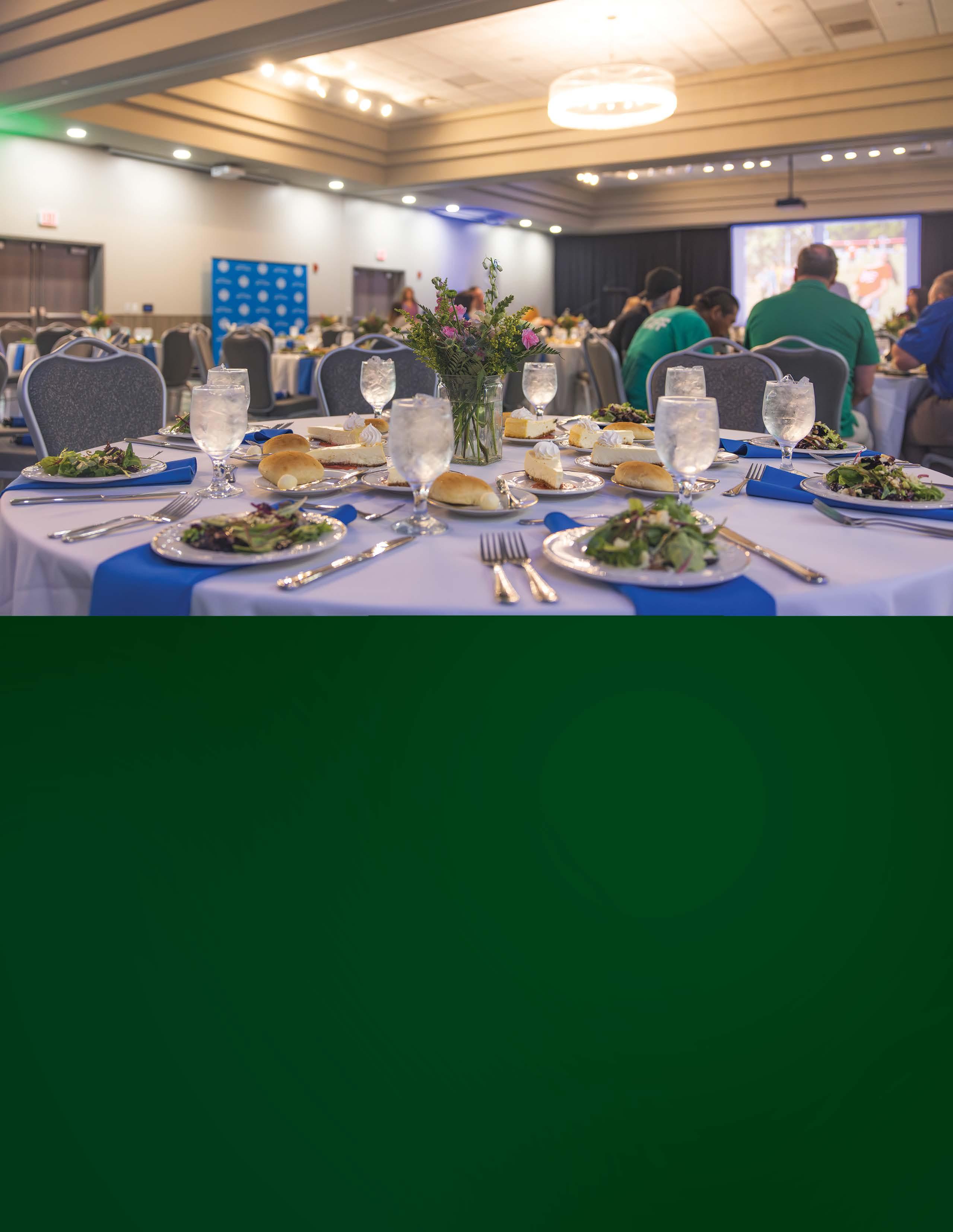
Why these numbers matter
Employees who feel valued and have the opportunity to learn new skills are more likely to stay at UWF.
DAESA focused many efforts on staff retention and staff development this past year. The vacancy rate dropped significantly, meaning most offices are now fully staffed.
36 new staff onboarded 20% July 2023 5% July 2024
Recreation and Wellness (RecWell) and University Commons and Event Services (UCES) engaged external users.
number of reservations from users outside of the University accommodated:
739 RecWell 281 UCES
The Educational Research Center for Child Development (ERCCD) obtained a prestigious grant.
$1,715,567 CCHAMPIS Grant
ERCCD received a $1.6 million, fouryear grant from the U.S. Department of Education to assist Pell-eligible and Pell-recipient student-parents with the costs of childcare. This is the largest grant the University has been awarded to offset childcare costs for students. In addition to securing the grant, ERCCD also accomplished the near-impossible feat of a perfect grant review score.
Read more in UWF Newsroom UWF awarded $1.6 million grant to support student-parents
Technology and marketing
The Office of Design and Communication and Technology Support Services supported an increase in Jira ticket requests.
Marketing tickets completed 3,082 Technology Support Services tickets completed
DAESA annual staff award winners:
DAESA DAZZLER
Darby Drapeau
Student Support Specialist, Office of Student Engagement
DEPARTMENT OF THE YEAR
Career Development and Community Engagement
DAESA DEVOTED TO OUTSTANDING SERVICE
Amos Davidson, Jr.
Assistant Director, Office of Student Engagement
DISTINCTIVE PROGRAM
Argo Pantry’s Wellness Wednesdays offered by the Dean of Students Office
DAESA DISTINGUISHED HALL OF FAMER
Dawn Rockey Director, Student Accessibility Resources
DAESA DYNAMO
Candice Morgan Director, Student Success
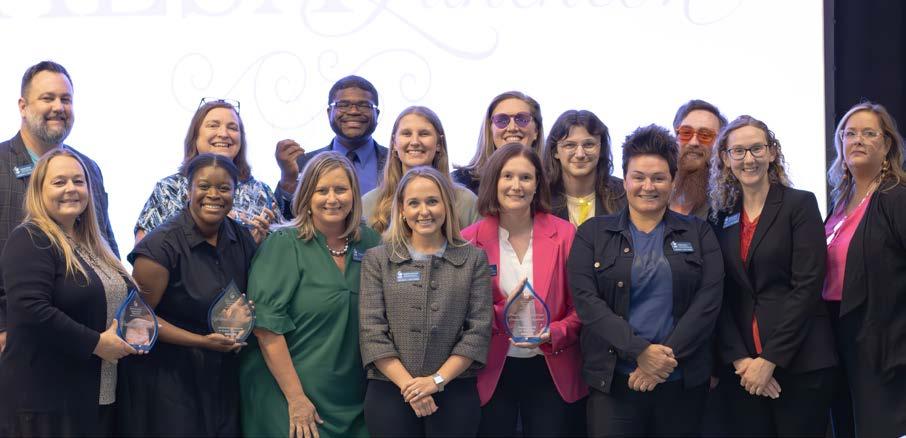
staff development programs were offered
Business meetings, birthday treats, professional development seminars, onboarding Tea with Tomso, community service events, recreation, and annual HoliDAESA and Spring Luncheon events were held again this year. A new staff recognition event was introduced around Valentine’s Day.
The New Argo website saw students and families stay engaged throughout the year with 7,300 Mail Chimp newsletter opens and 3,791 website views. These were the most popular topics for new students:
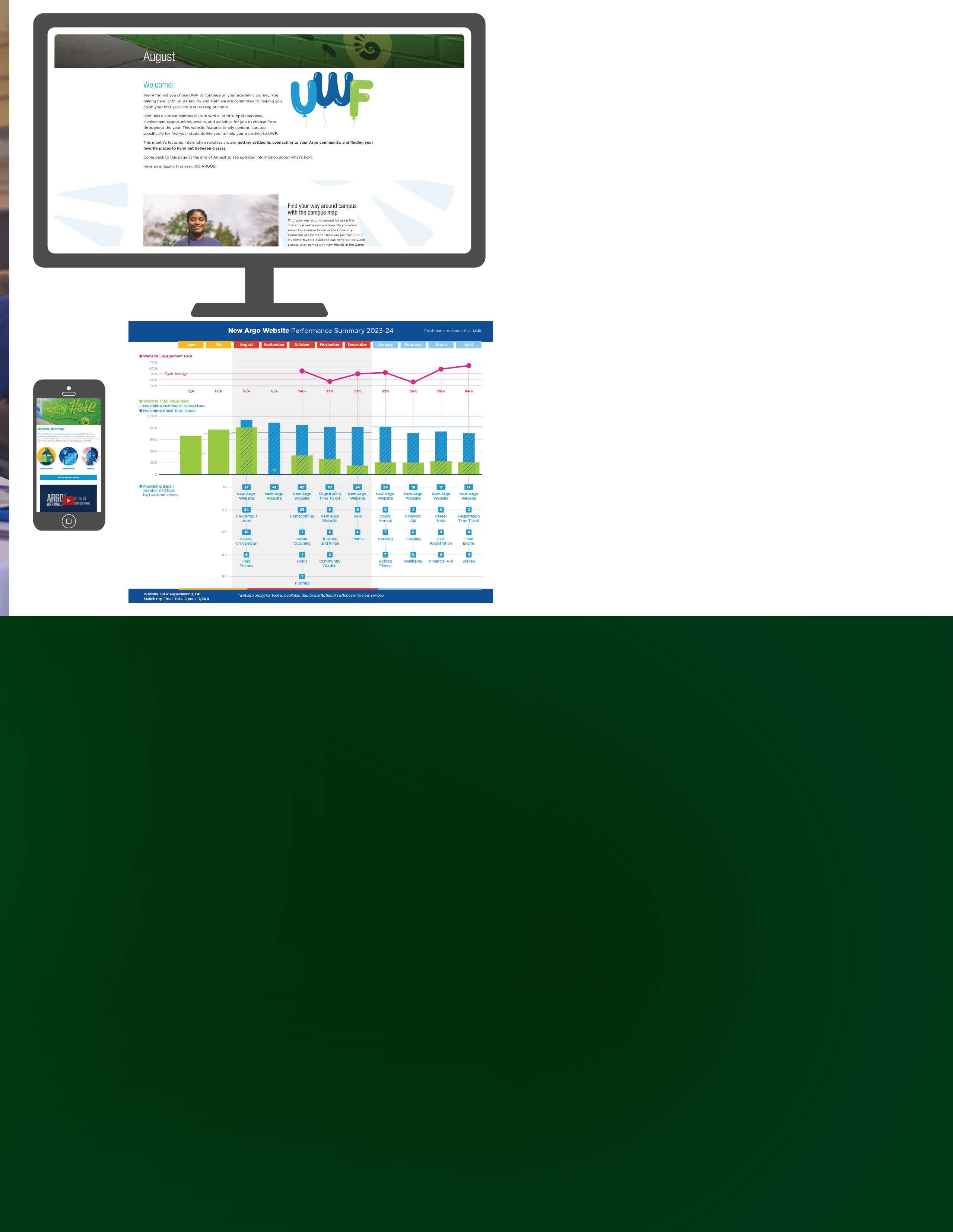
A staff survey was administered in November and assessed three main themes that were identified as areas of improvement in DAESA’s 2022 self-study: Communication, Connectedness and Impact.
of respondents said
“The road to medical school is long and treacherous. It includes thousands of hours of extracurricular activities while maintaining a high and competitive GPA. This year I found myself struggling, mentally and financially, throughout the year due to the unconventional circumstances of my family at the moment, who reside overseas in Israel. Between volunteering, shadowing, tutoring, and 39 credit hours, I struggled financially not being able to put food on the table. The emergency grant gave me relief when I needed it the most, it enabled me to buy groceries for six weeks and allowed me to keep my head above water. The financial relief allowed me to focus on my studies and maintain a 4.0 GPA. The emergency funding was nothing short of a blessing for me.
“Itamar, Junior, B.S. Mathematics
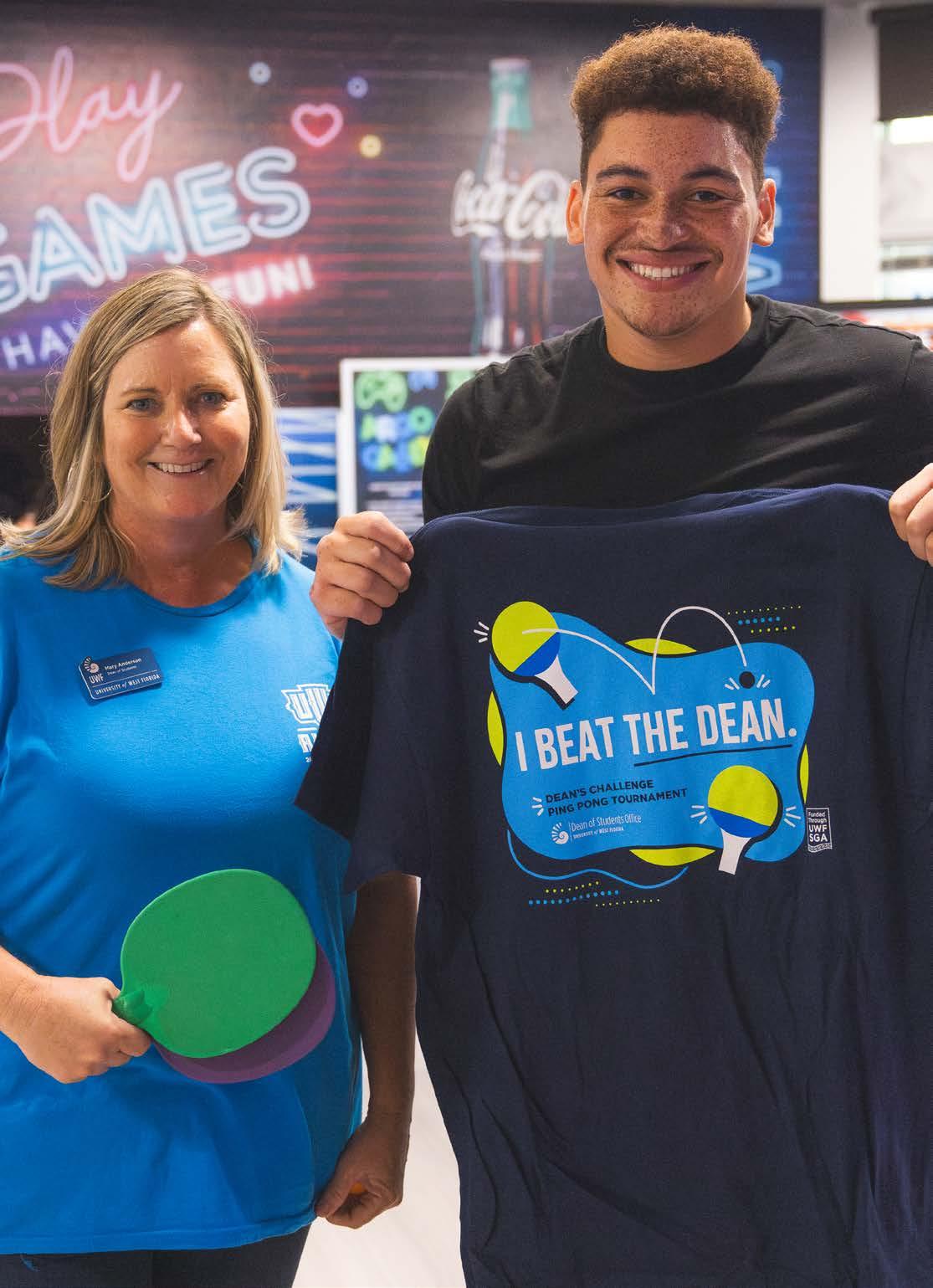
I am so grateful for UWF’s Commuter Student Services! Prior to discovering it, I felt so disconnected and helpless that I probably would’ve dropped out by now had I not found the Commuter Hub and Tom [Jewell, staff member overseeing the Commuter Hub]. Since utilizing Commuter Student Services, I’ve felt empowered and supported, like I’m part of a community. These feelings were revolutionary for me, having once felt so isolated. I’ve since become an officer in the Commuter Student Association and begun exploring new aspects of UWF. I’ve discovered and extensively utilized numerous on-campus resources that I was previously unaware of like Pace Library, Counseling and Psychological Resources (CAPS), the Health, Leisure, and Sports Facility (HLS), the Galley, Tutoring and Learning Resources (TLR), Campus Activity Board (CAB), Student Accessibility Resources (SAR), the bookstore, student organizations, and events in the Commons. I’m genuinely thankful for the connections, support, and sense of belonging I’ve found thanks to Commuter Student Services.
“Andrew Walthall, Junior, Computer Science
“The Kugelman Honors Program opened up many opportunities for service through internships with the Health and Hope Clinic, where I became fascinated with dentistry and assisting others, and through the Honors Council, where I met many amazing students who support each other and our local community. One thing I have come to appreciate about Honors is their inclusion and efforts to foster genuine connections in a diverse world. In our Medical Humanities honors seminar, I found compassion and respect for the many people and issues surrounding our well-being. In the Honors pilot program at Noble Hearts Academy, I found relationships being made with people of all ages and backgrounds. These traits are something that I know will benefit me no matter where I go, and I truly appreciate the time I spent with Honors here at UWF.
Minh Khuyen Tran, Biomedical Sciences major

This report is full of stories of impact and how DAESA shapes the overall university experience for UWF students. Underneath these headlines are stories of individual students and staff whose experiences make up the whole of DAESA.

STUDENT EMPLOYMENT SPOTLIGHT
EDUCATIONAL RESEARCH CENTER FOR CHILD DEVELOPMENT (ERCCD)
Kayt has now accepted a full-time Voluntary Prekindergarten (VPK) Teacher position at ERCCD.
The ERCCD has formed a collaborative partnership with the School of Education that will provide an opportunity for Kayt to complete her student teaching at the ERCCD. This partnership aligns with our commitment to providing experiential learning opportunities for adult learners by offering a hands-on, supportive learning environment. Kayt will gain valuable experience working alongside our experienced staff, while contributing fresh ideas and energy to our VPK classroom.
Kaley Dawkins, Director
The Center’s mission includes providing experiential learning opportunities for adult learners. Kaytlyn Larsen is a prime example of that.
Kayt started with the ERCCD as a student teacher assistant, moved into an interim lead teacher position and works directly with our administration team.
Kaley Dawkins, Director
In DAESA, hard-earned individual success contributes to the success of the whole.
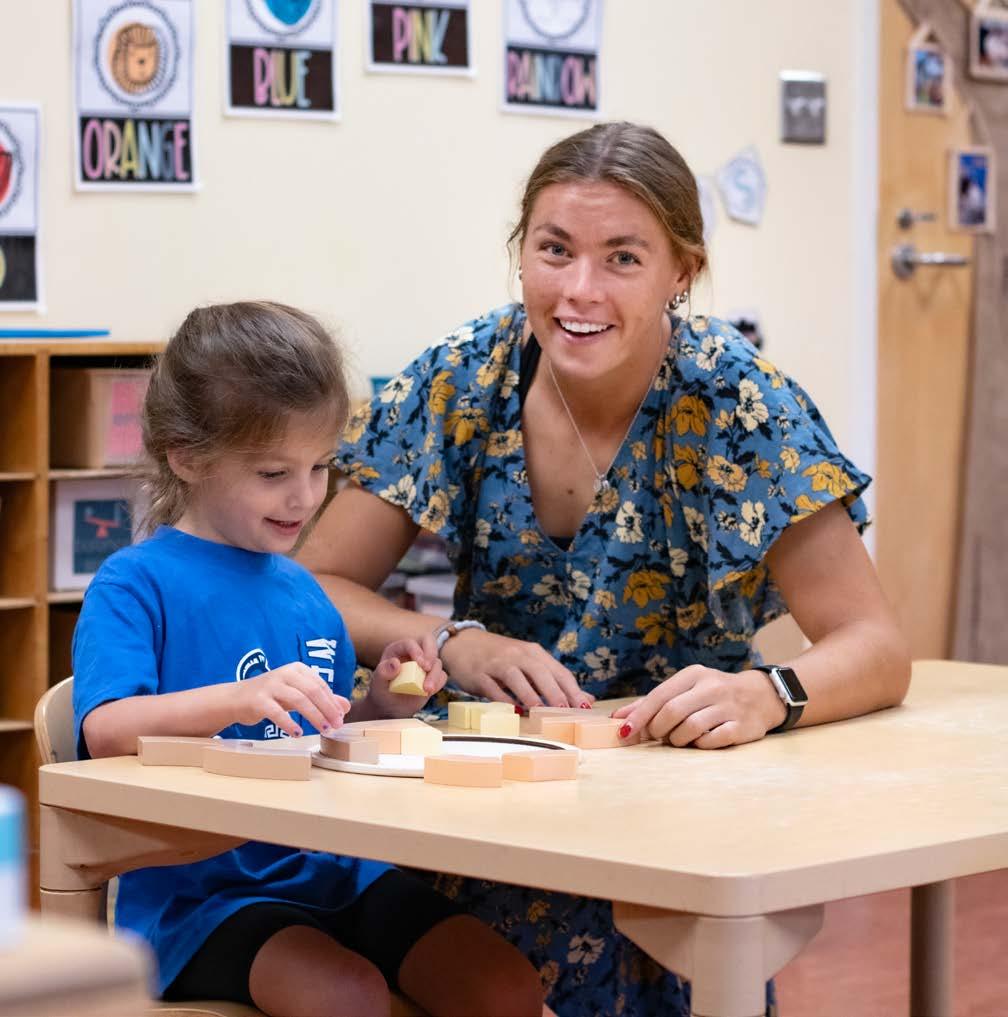
“ “
This partnership will provide me with practical, real-world experience in an early childhood education setting. By completing my student teaching at the ERCCD, I can foster more hands-on experience in an early childhood setting by managing a classroom, developing lesson plans, and interacting with young children in a research environment. I’m provided mentorship from seasoned educators who can provide constructive feedback and guidance throughout my career. These opportunities have encouraged me to continue my education beyond a Bachelor’s degree following my graduation in May 2025.
I hope that this partnership allows me to become a mentor for future School of Education students who have similar career aspirations.
Kaytlyn Larsen, Early Elementary Education and Exceptional Studies major